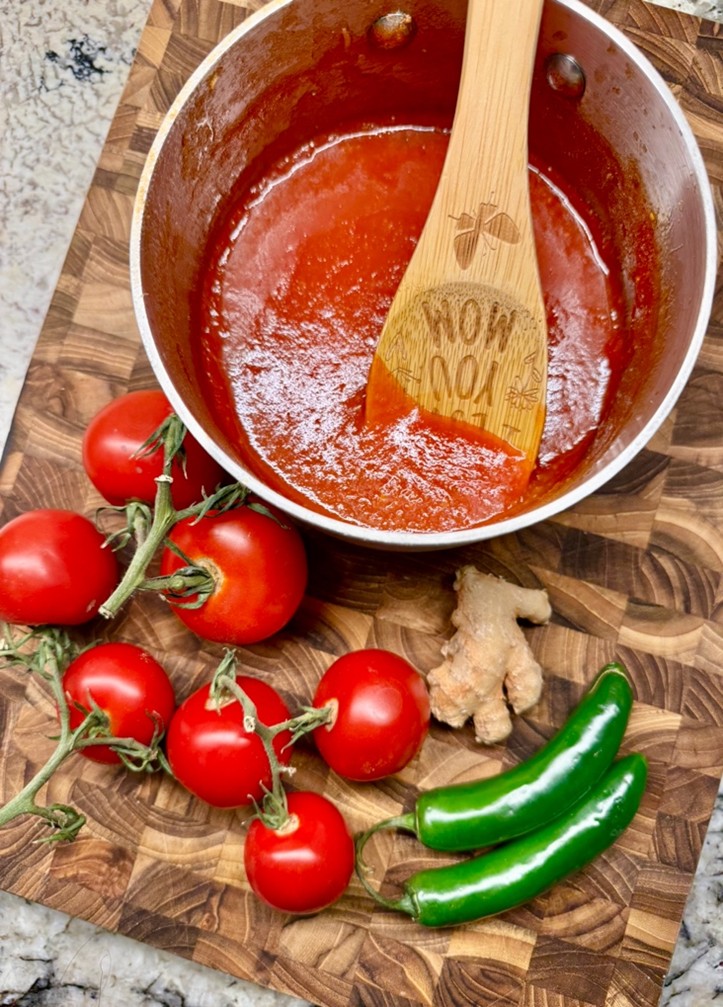
The Proven Platter – India, April 2025
This month as we honor our Featured Grantee, Asia Initiatives, and their work in India, I’m taking a little walk down memory lane to my childhood summers in India. Details

This month as we honor our Featured Grantee, Asia Initiatives, and their work in India, I’m taking a little walk down memory lane to my childhood summers in India. Details
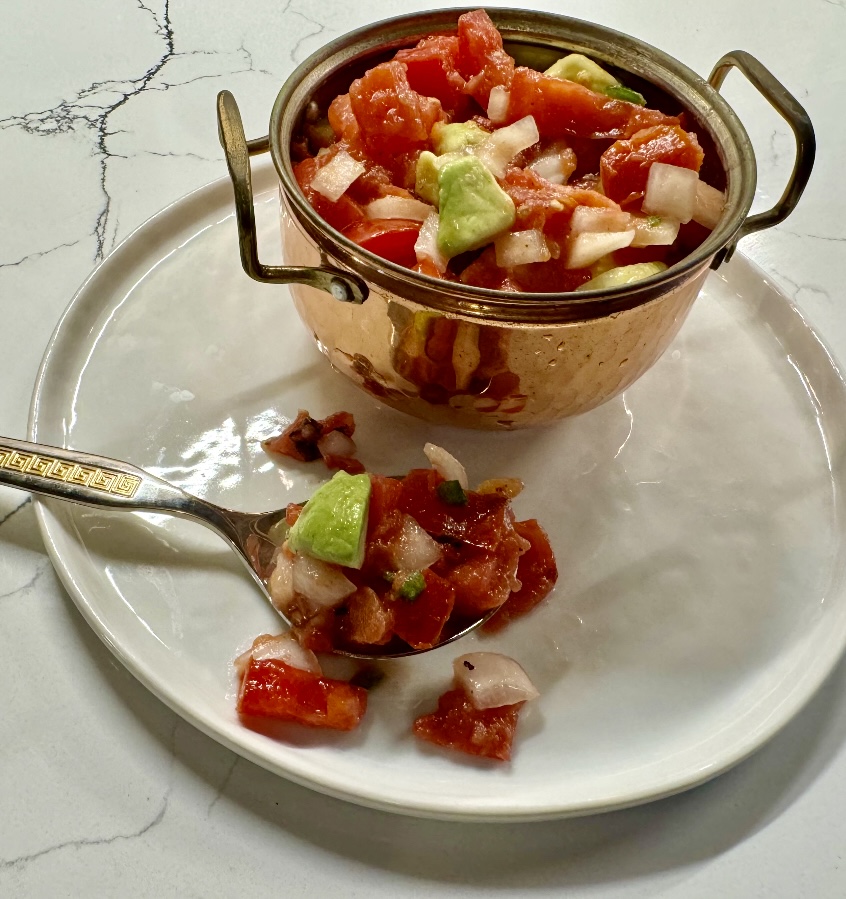
To know the cuisine of Tanzania is to know Kachumbari. This refreshing salad is a staple side dish or condiment, found on most dining tables. While the basic ingredients include tomatoes, onions, an acid (usually lime juice), and heat (such as chili peppers or Scotch bonnets), variations abound. Some prepare it with sliced tomatoes, while others prefer a diced preparation – choose whichever suits your needs. Details
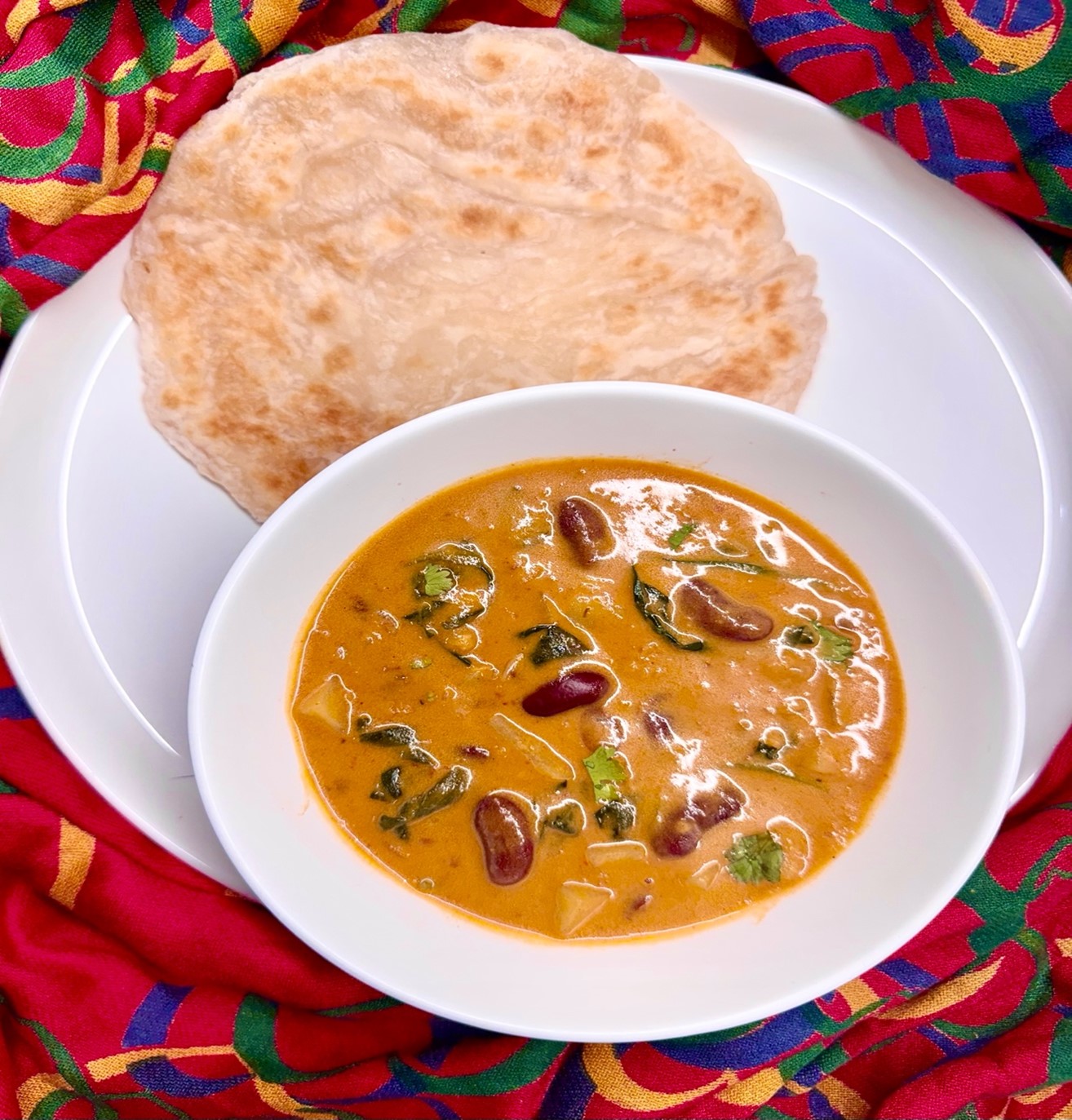
The recipe for this month, a rather cold February 2025, is in honor of our grantee, Kakenya’s Dream. The dream is to “invest in girls from rural Kenya through educational, health, and leadership initiatives to create agents of change.” The weather and the subject of our inspiration (Kenyan cuisine, girls being empowered…) seemed to conspire to prod me toward a stew of some kind, a stew that would warm your heart, lift your spirits, and fill you up. Enter: Maharage Ya Nazi, Details

The cuisine of Mali has historically been marked by a sense of frugality, prioritizing the ingredients that are locally available and that are available in abundance. Techniques of preparation are likewise rather simple and straightforward, ensuring a certain kind of efficient use of time and resources. Details
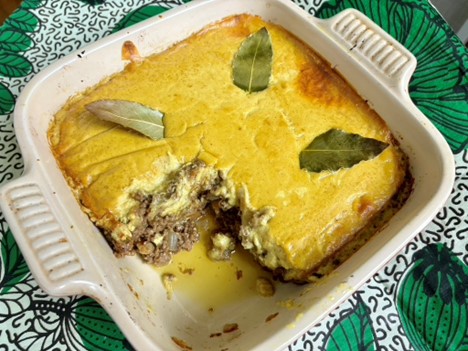
Hello Diners!
Well, this is pretty exciting. Our good works bring us to South Africa this month, a country that we have not yet had an opportunity to support. Our November grantee, No Means No South Africa (NMNSA), seeks to provide education and practical skills to end sexual violence against women and children. Details
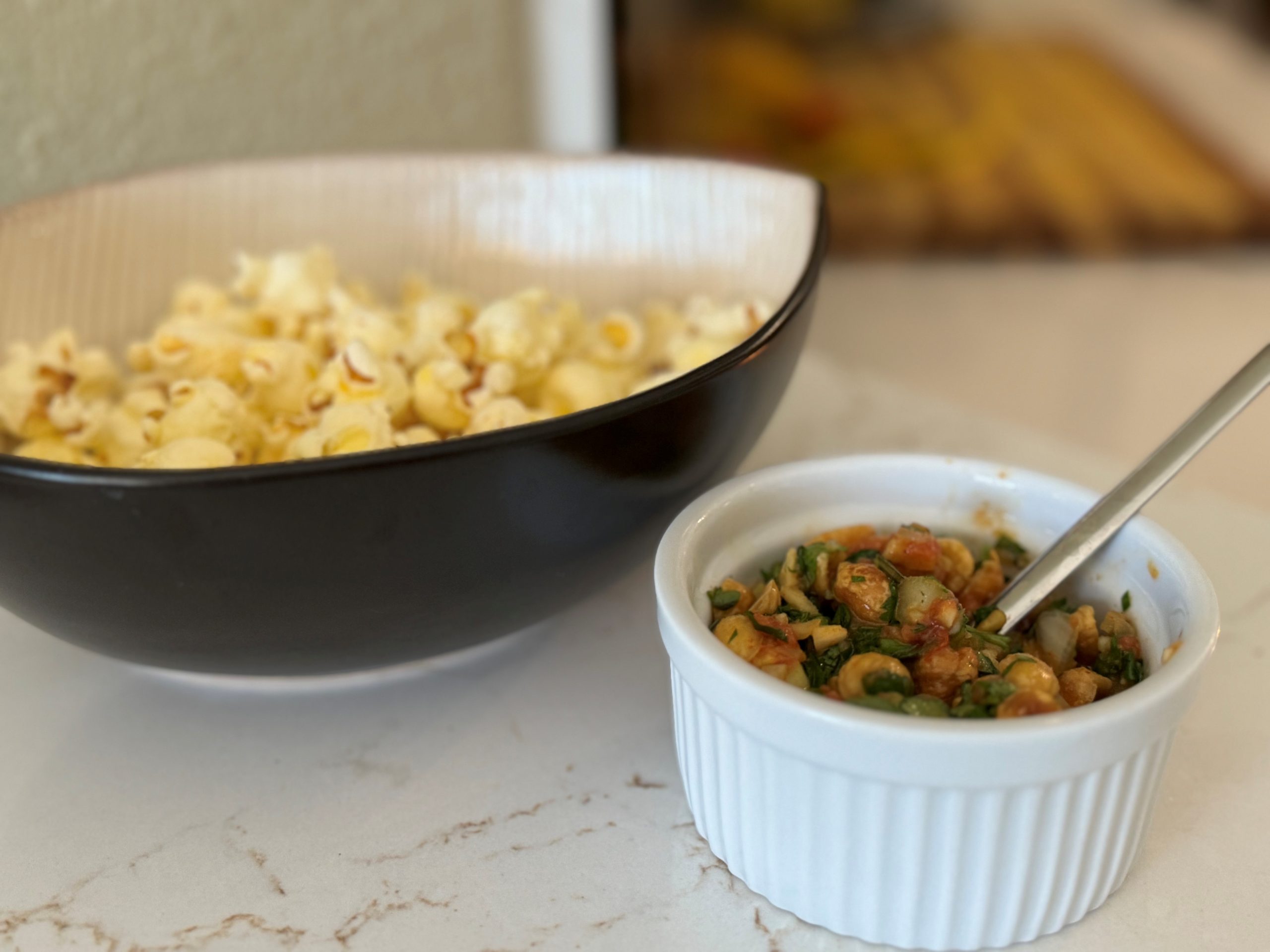
For this month’s Proven Platter, we “visited” Nepal. While the country is famously known for its majestic and beloved Mt. Everest, it’s also home to a variety of uniquely bold and flavorful dishes. The beauty of Nepali cuisine lies in the combination of simple ingredients that form the foundation of many beloved dishes. Vegetarian staples like lentils, rice, corn, and potatoes are transformed with the addition of aromatic spices and condiments. Some of these ingredients may already be in your pantry, such as turmeric, coriander or chilies, while others, like fenugreek seeds, mustard oil, and ajwain seeds, may require a special trip or an online order – but trust us, it’s well worth it! Details
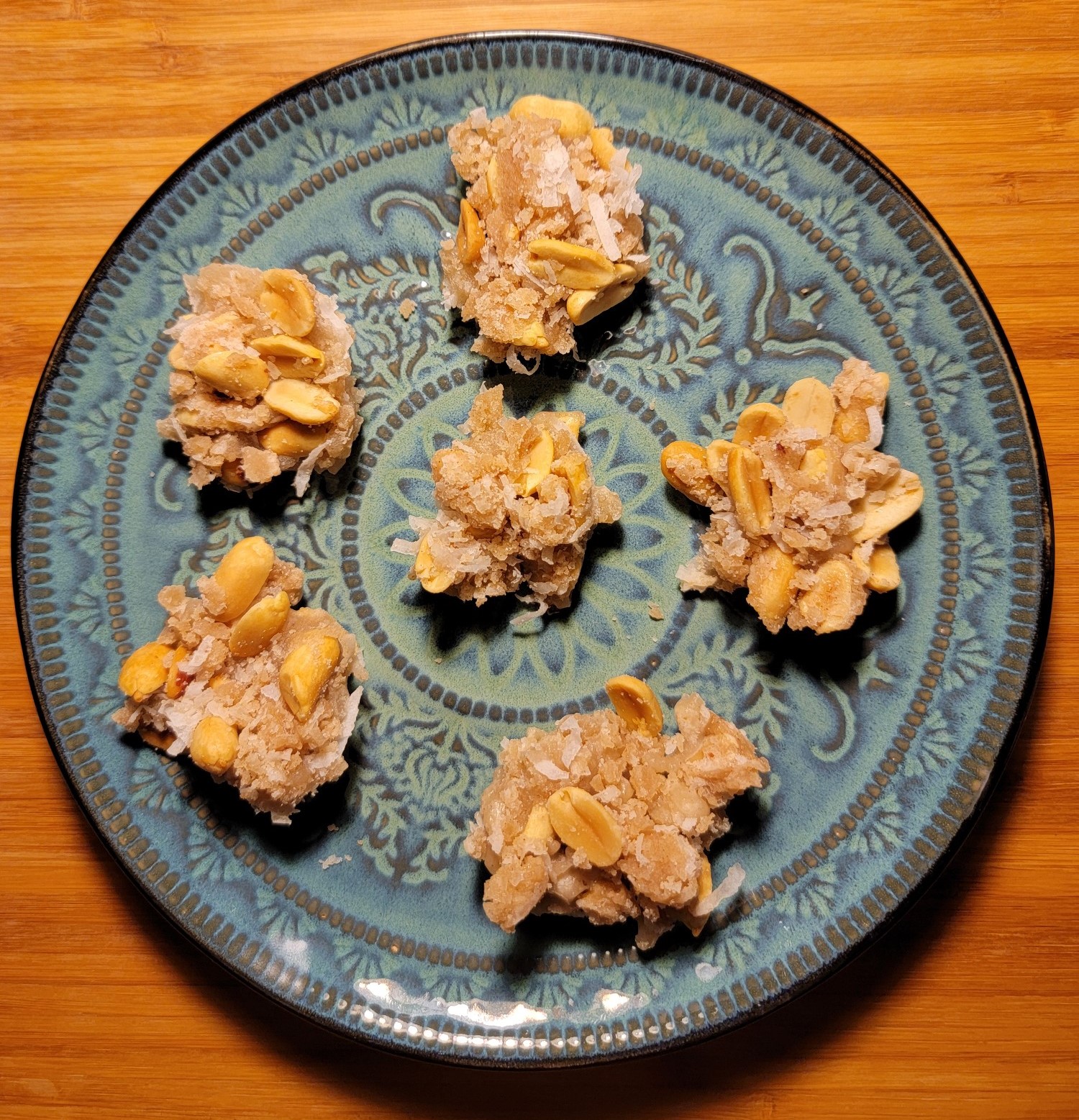
It’s not often that we have a candy recipe here at Together Women Rise, but this one is simple and loaded with flavor. It can be enjoyed all year, and will be a delight for everything from pool parties to holiday gatherings. Details
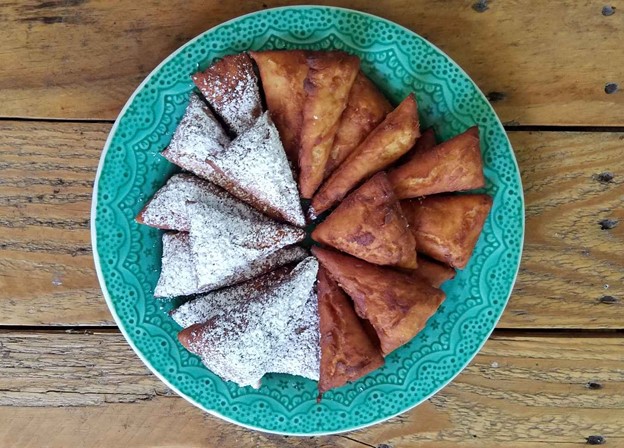
It’s a double month, so you have more delicious food options for your chapter meeting or to add to your menu at home. But we’re pulling from the archives for our second batch of recipe delights. We repeat a recently featured country and one for which we have a delightful collection of recipes – enough to make a full meal. Details
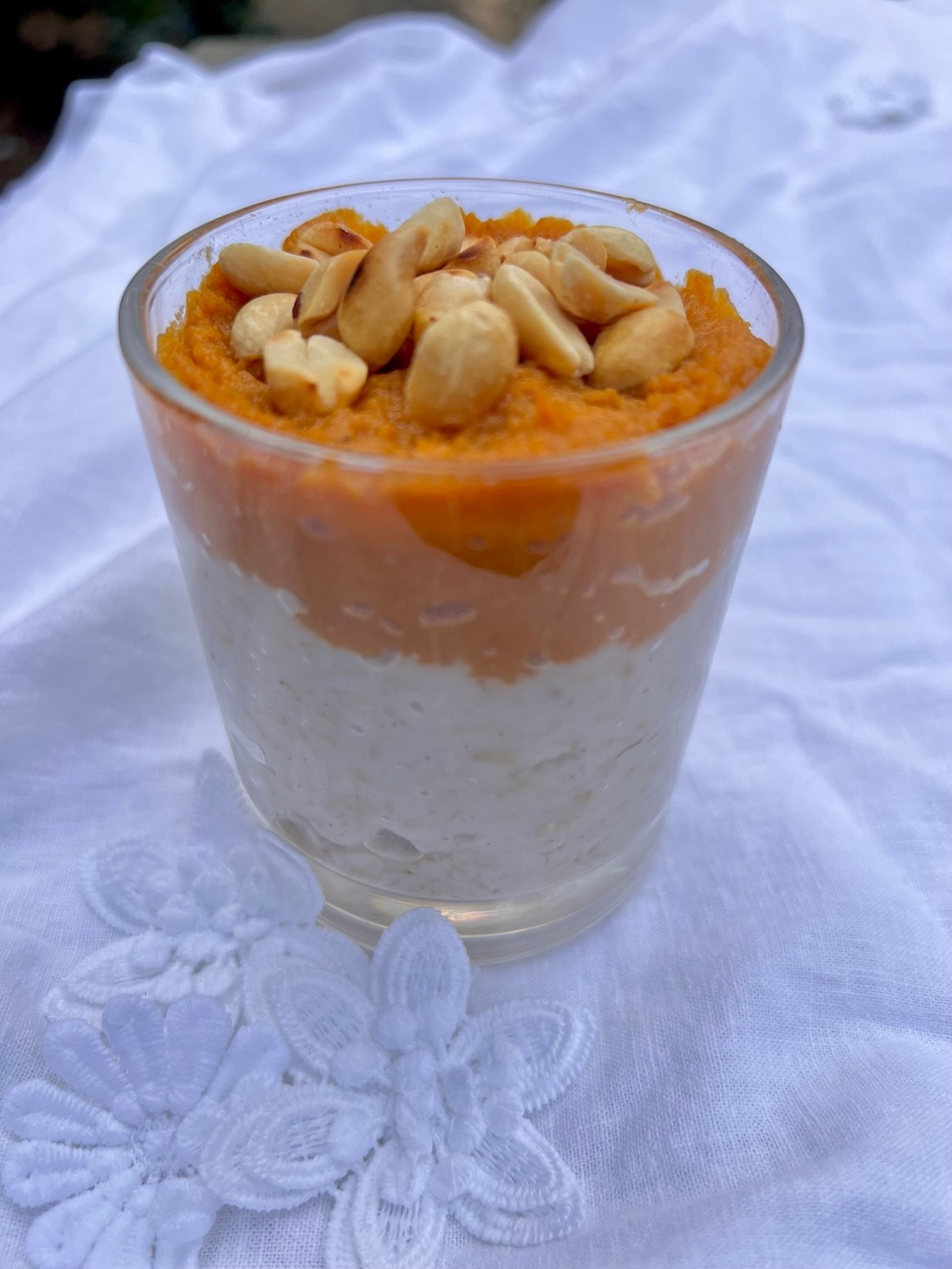
The traditional cuisine of Zambia is built around legumes, pulses, greens and vegetables that are indigenous to the region. Ingredients like Bambara nuts, groundnuts (peanuts), cowpeas, sesame seeds, soyabeans, wild spinach, pumpkin seeds, pumpkin, okra, and sweet potatoes are used in simple, straightforward perparations that preserve their nutritional value. Animal-based proteins are less frequently used. Of animal proteins, chicken and dried fish are the most commonly used. Details
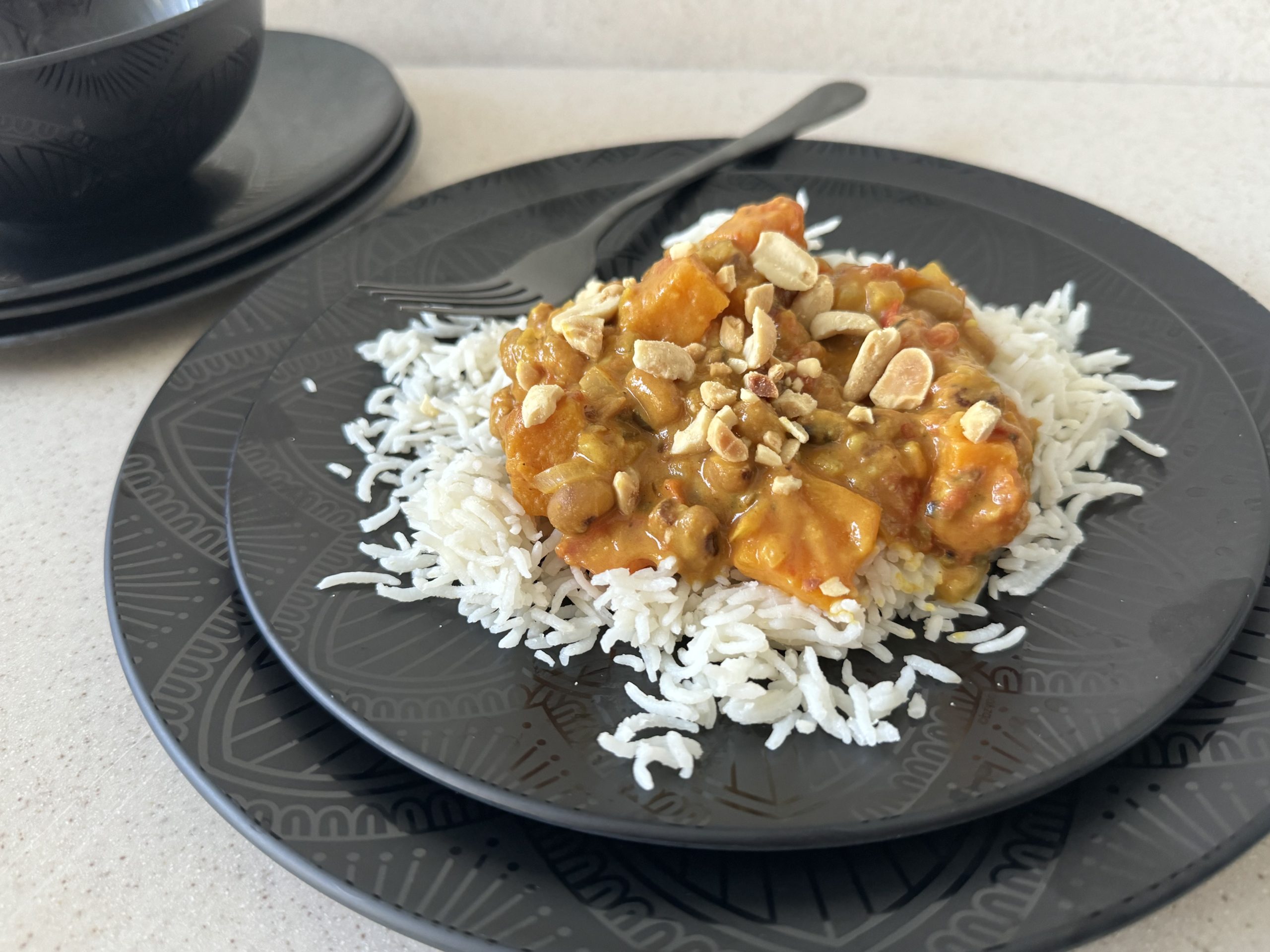
Please join us in welcoming the two newest members of the Together Women Rise recipe curator team. We are delighted to have Kristina Skepton and Terri Tucker share with us. They are a team within a team, working together to create and share recipes, knowledge, and some tasty additions to our recipe site. Thank you, Kristina and Terri! – Chris Worthy, Education Coordinator
For our first Proven Platter feature, we delved into the rich flavors of Kenyan cuisine. Details
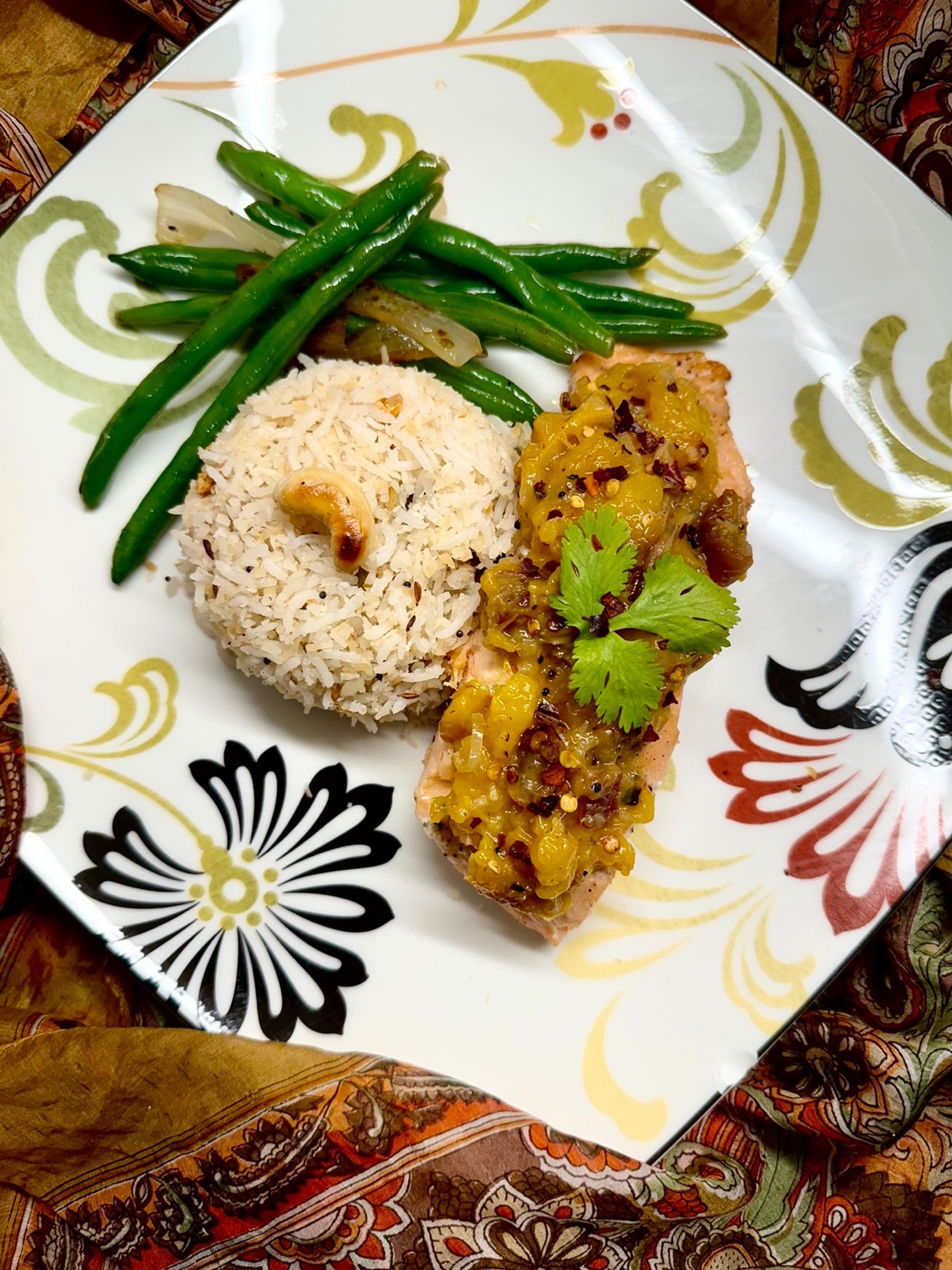
If there is one ingredient that is summer personified in India, it’s the mango. The mighty mango, the King of fruits, is to an Indian less a fruit and more “an emotion” or so they like to declare tongue-in-cheek, as they attempt to get a sampling of every variety they love in the specific timeframe that each variety is picked. With over 1,500 varities of mango cultivated in India, each with a distinct flavor, there’s a lot to sample. Some more expensive and difficult to source and being harvested for a very short period than others. Details
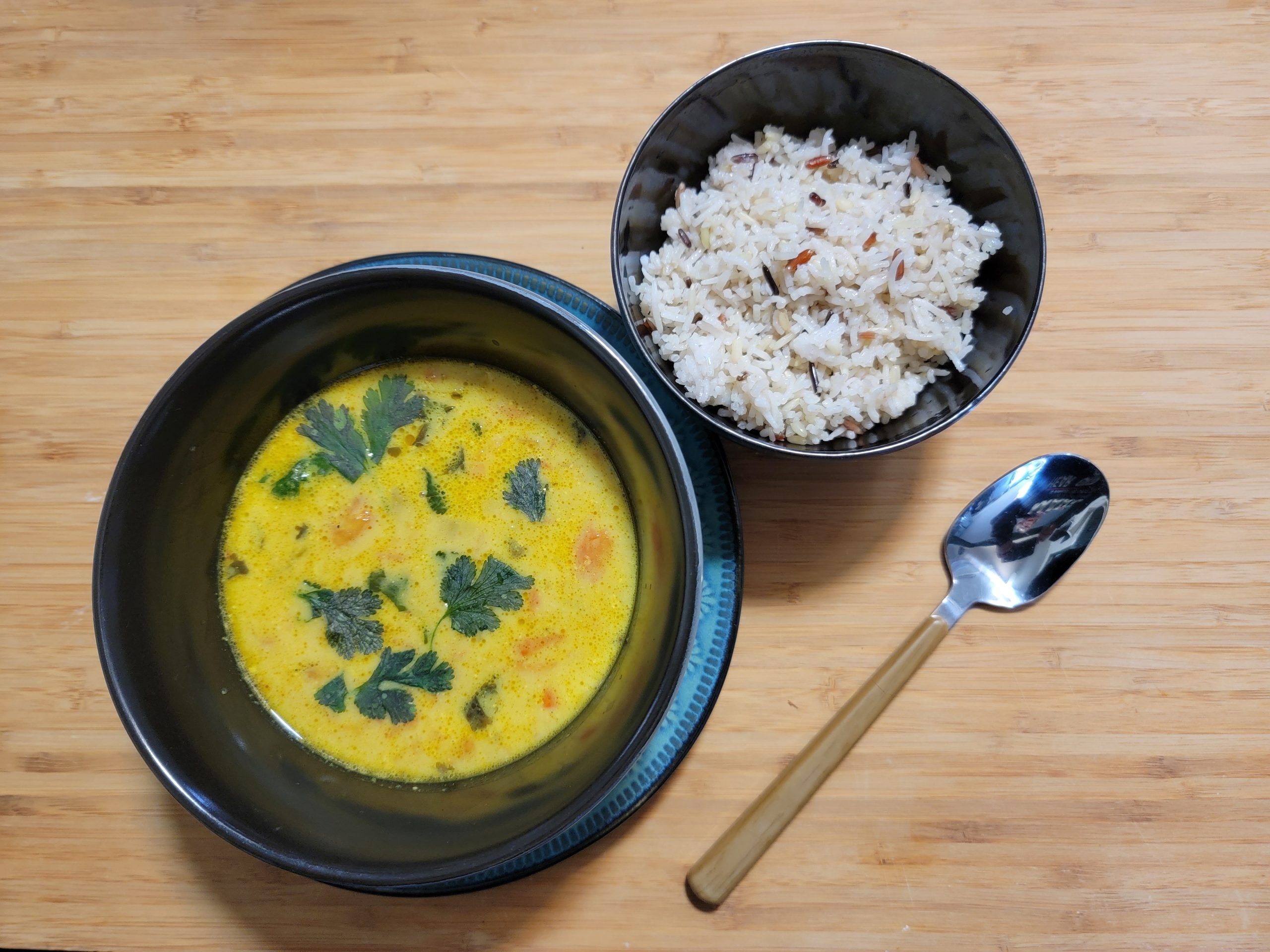
This month, we have the treat of having two new recipes. This one from Georgia Reader brings us what is commonly known as the national dish of Tanzania. This hearty vegan stew is best served over rice or ugali, a simple corn porridge. The warm spices are tempered by the creamy coconut milk but you can adjust the spice to your taste. Use canned (rinsed) kidney beans and you can have dinner on the table in no time. Details
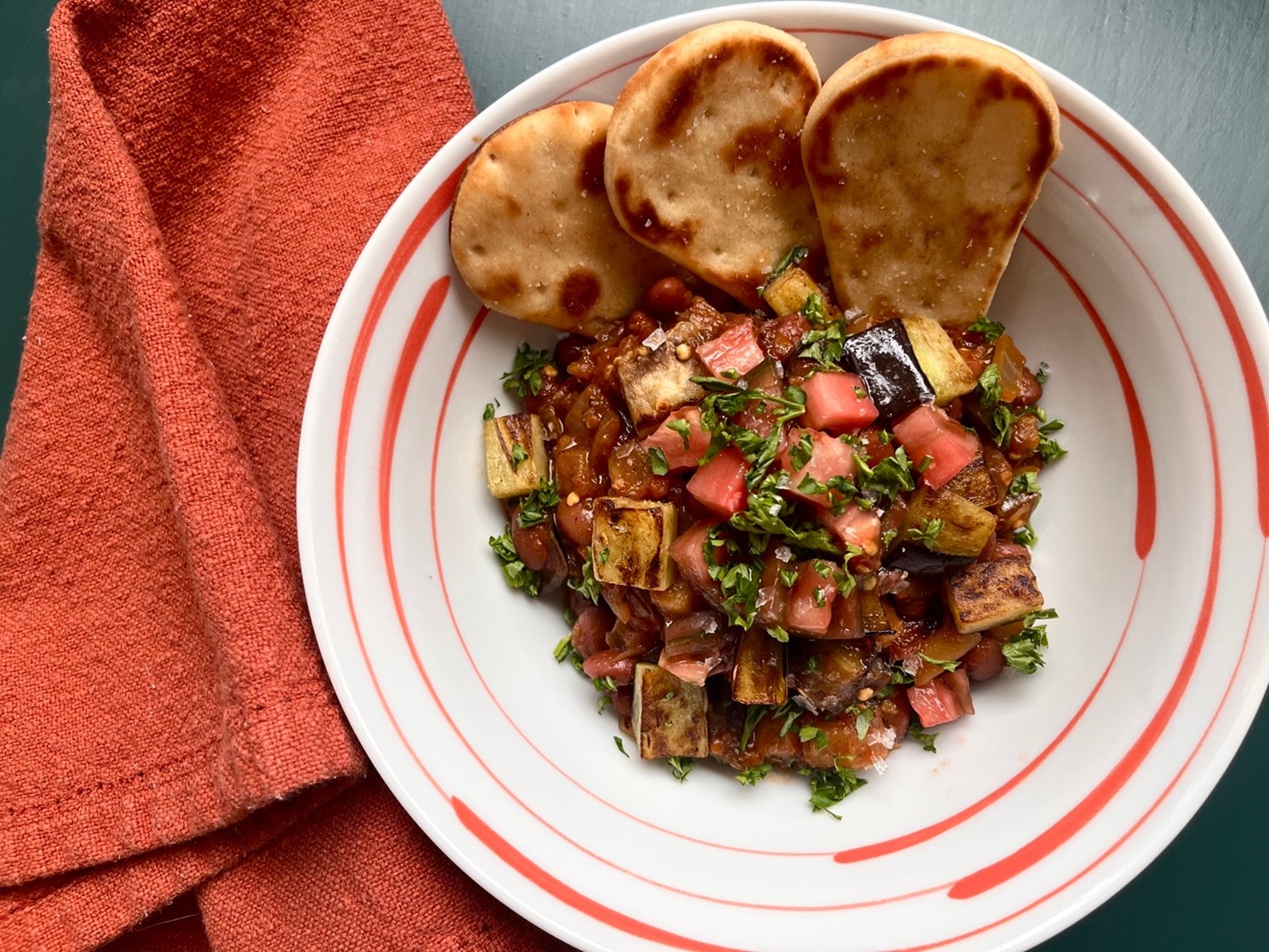
Hello Diners!
I am absolutely thrilled to be back in the role of volunteer Recipe Curator after several years off, and joining the current (fabulous) team of Georgia and Vinola, along with Kristina and Terri, who are also onboarding this year. I look forward to working with them and am really excited for the opportunity to discover new recipes for you to share with your families or at your chapter meeting. Details
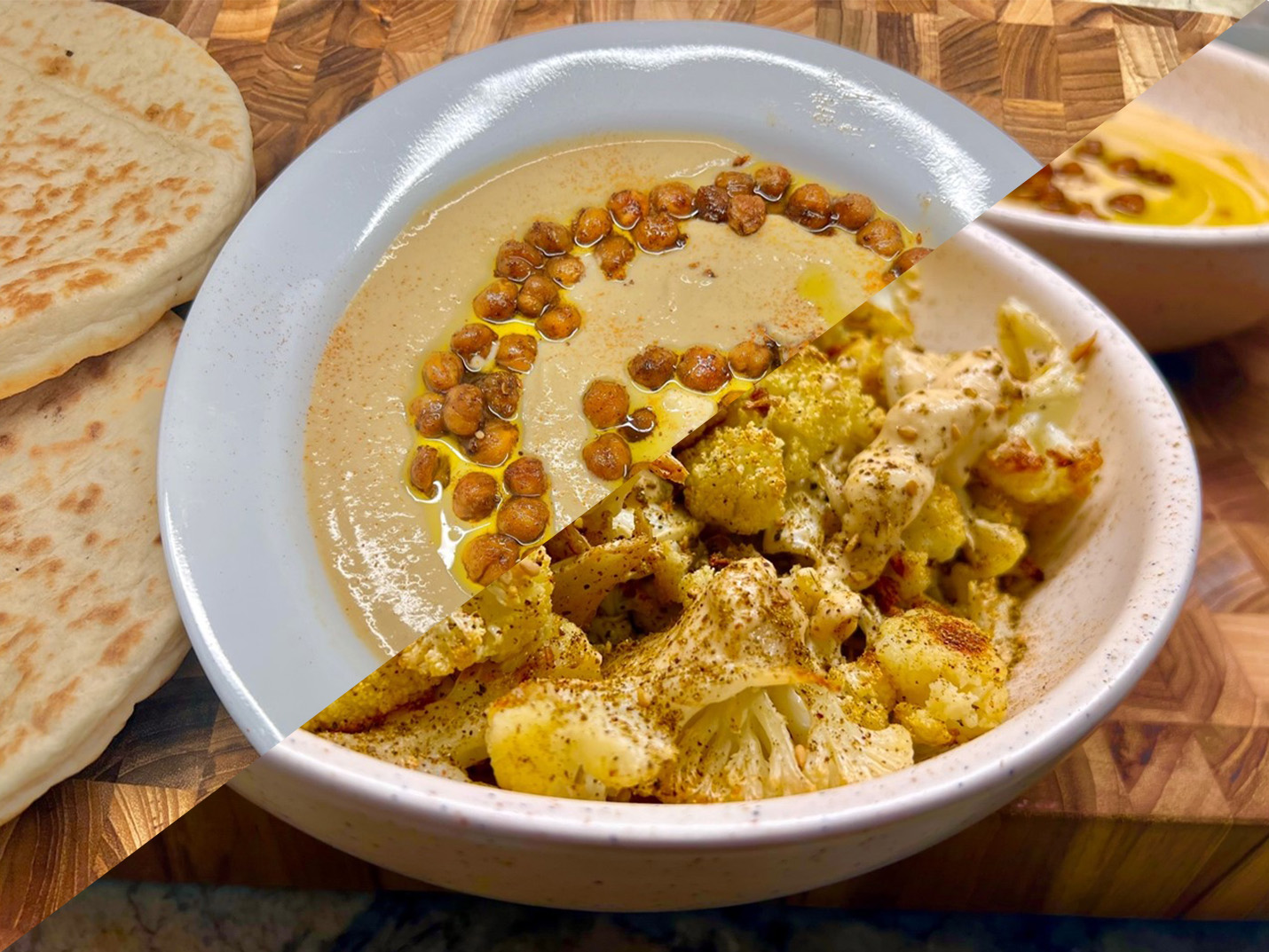
This month, Together Women Rise features a Transformation Partnership Grant to support Equality Now’s work to achieve legal gender equality, end harmful practices, end sexual violence, and end sexual exploitation. This work is global, so while we don’t feature a specific country, we invite you to peruse our full recipe archive with recipes from all over the world, and try these light and delicious new recipes from co-curator Vinola Munyon, which are inspired by the cuisine of Lebanon. Details
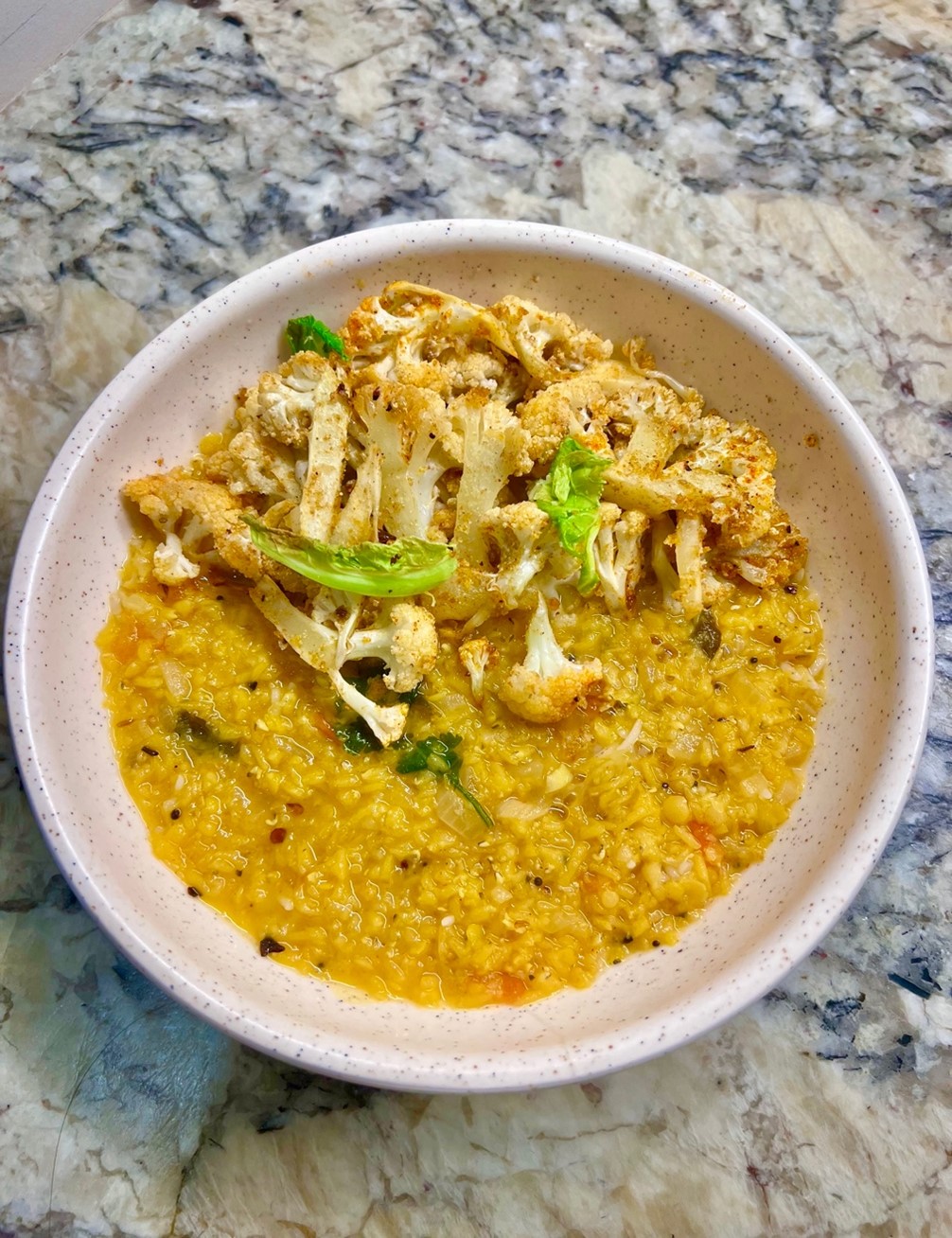
Influened by its history and its geography, Bangladeshi cuisine is a rich and varied amalgam of Mughlai, Central Asian, Armenian, Persian, and Indian culinary traditions. Like many countries in Asia, rice is the staple grain. The protein of choice is fish. The dish featured this month, Masoor Dal Chorchori, is a vegan, gluten-free dish found in the kitchens of Bangladesh and its neighbor, India. In the Bangaldeshi avatar, the oil that is traditionally used is mustard oil. A distinguishing feature of the Bangladeshi dish is the addition of the mix of spices known as “Panch Phoran” (also called panch phoron or paanch phoron). Panch Phoran literally translates to “five spices” and is a spice blend commonly used in Bangladeshi cuisine. It consists of the following whole spices: cumin, brown mustard, fenugreek, nigella, and fennel. To keep the dish traditional, we will be using mustard oil. If you do not have access to mustard oil, you could substitute with avocado oil which has a high smoke point, an essential quality for “tempering.” Tempering is a technique used in South East Asian cooking that involves “blooming” whole spices in oil so the spices perfume the oil and deepen the flavor. The tempered oil and spices are typically added to the cooked dish while both are still hot to infuse the flavors into the dish. Watch for splatters when tempering and adding to the cooked lentils/dal! Details
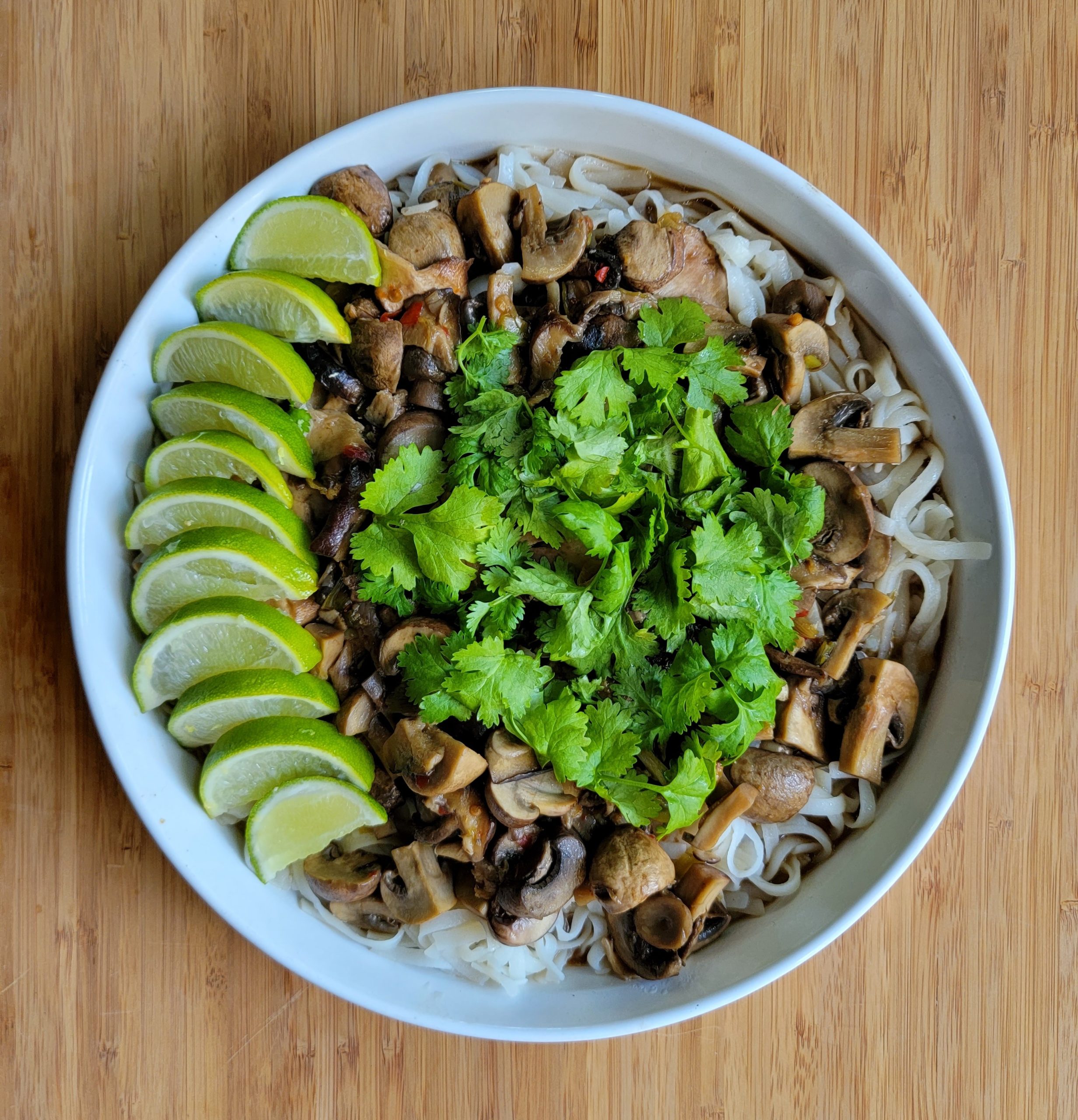
This month, we span the globe with two featured grantees. And there is no reason your chapter meeting’s meal – or your family menu for the week – can’t be an eclectic celebration of both! Details
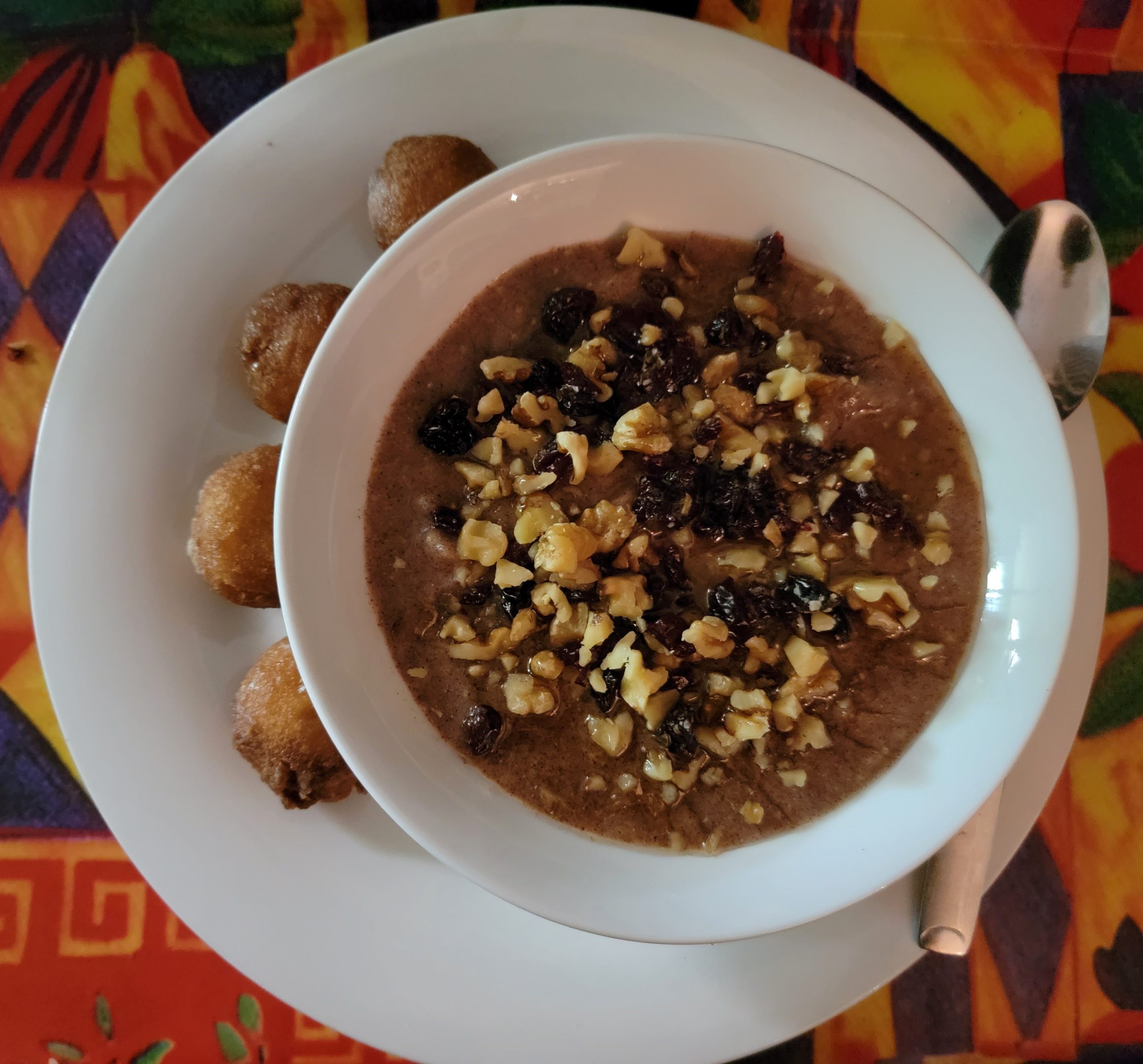
Uji is a spiced millet breakfast porridge usually served with a side of mandazi or other sweetened fried dough (similar to a light, fried doughnut). Originally, it was made with millet that had been mixed with water and fermented for added depth of flavor. More often now it is made with a millet flour blend which adds flavor and texture without the three-day fermenting time. Because it is economical to prepare, it has become a common street food. Details

The cuisine of Honduras is a delightful fusion of Central American, Mesoamerican (Lenca), Spanish, Caribbean, African, and Garifuna cuisines; a product of its own roots and a marriage of cuisines that it came in historic or geographic proximity with. The dishes, whether savory or sweet, are rich in flavor and use ingredients that are locally grown or sourced. This month’s dish, Honduran Yucca cake, features some quintessential Honduran ingredients, including yucca (cassava) and coconut milk. Somewhat reminiscent of a tres leches cake in that this recipe also uses three kinds of “milk,” coconut, evaporated and condensed, the yucca cake is vastly different in texture and taste as it uses grated yucca as the “flour.” It is almost less cake and more like a bread (zucchini bread comes to mind), if you will. Extremely flavorful, due to the mix of spices used, and somewhat decadent, a slice of this cake would be perfect with coffee as an evening snack or as dessert. Details
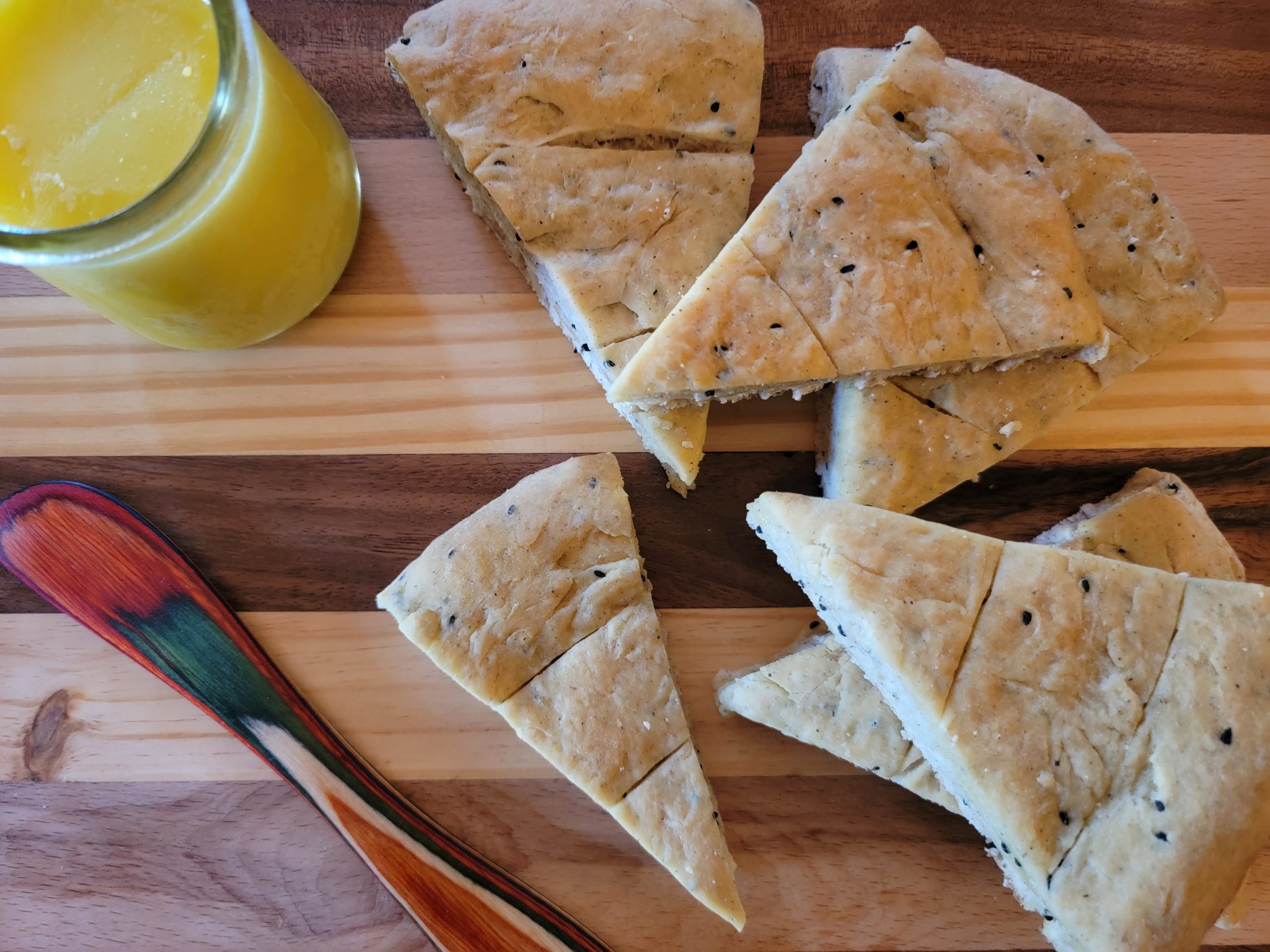
This month, two recipes combine for a delicious Ethiopian treat: a spiced butter (Niter Kibbeh) and a lightly sweetened and spiced bread (Himbasha). Note that spices commonly used in Ethiopian cuisine are featured here, including cardamom and fenugreek. Though you can certainly enjoy this Ethiopian sweet bread with spiced butter spread any time of day, it is generally eaten for breakfast or as a side to a meal, as desserts are not common in Ethiopian cuisine. Details
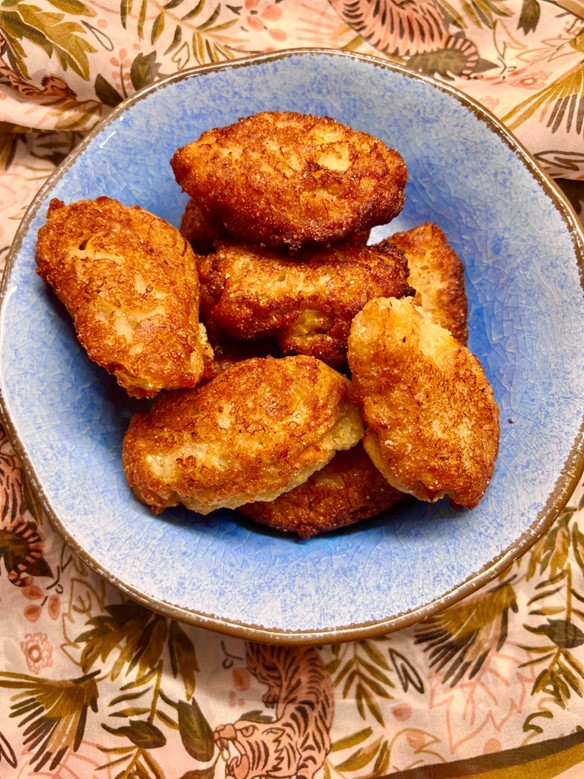
Malwaian cuisine has remained relatively unchanged from influences of other cuisines. It is thus very traditional, utilizing the produce, grains, and meat that are found in the region and that can be locally sourced. Most dishes are uncomplicated and composed of a few ingredients and involve fairly straightforward preparation. Zitumbuwa are a perfect example of this. Zitumbuwa are deep fried banana fritters that are made of just three ingredients: banana, fine cornmeal (more traditionally, maizemeal), and baking soda. Some more contemporary interpretations add milk and egg, but we are keeping to basics here. The Zitumbuwa come together in less than 15 minutes and are best eaten hot. Crunchy, sweet, and delicious, they would make for a perfect evening snack with tea on a warm April evening. Details
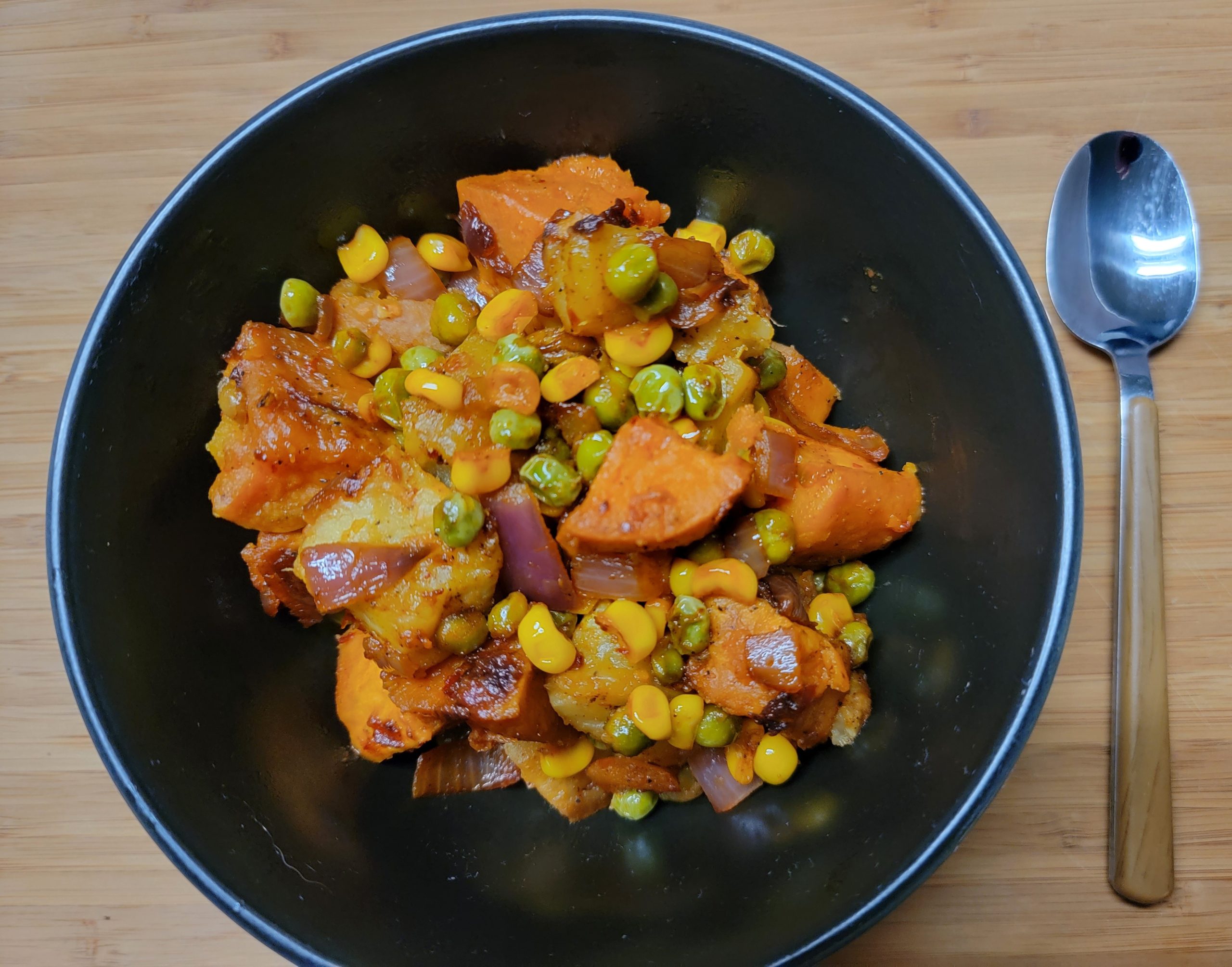
Irio is another simple but delicious Kenyan week night dinner. There are many variations – from a simple mash of sweet potatoes, peas and corn seasoned with salt and pepper, to a spicier dish using a blend of sweet onions, smokey paprika and hot sauce. I preferred the spicier blend with white and red sweet potatoes roasted to maximize their sweetness. Details
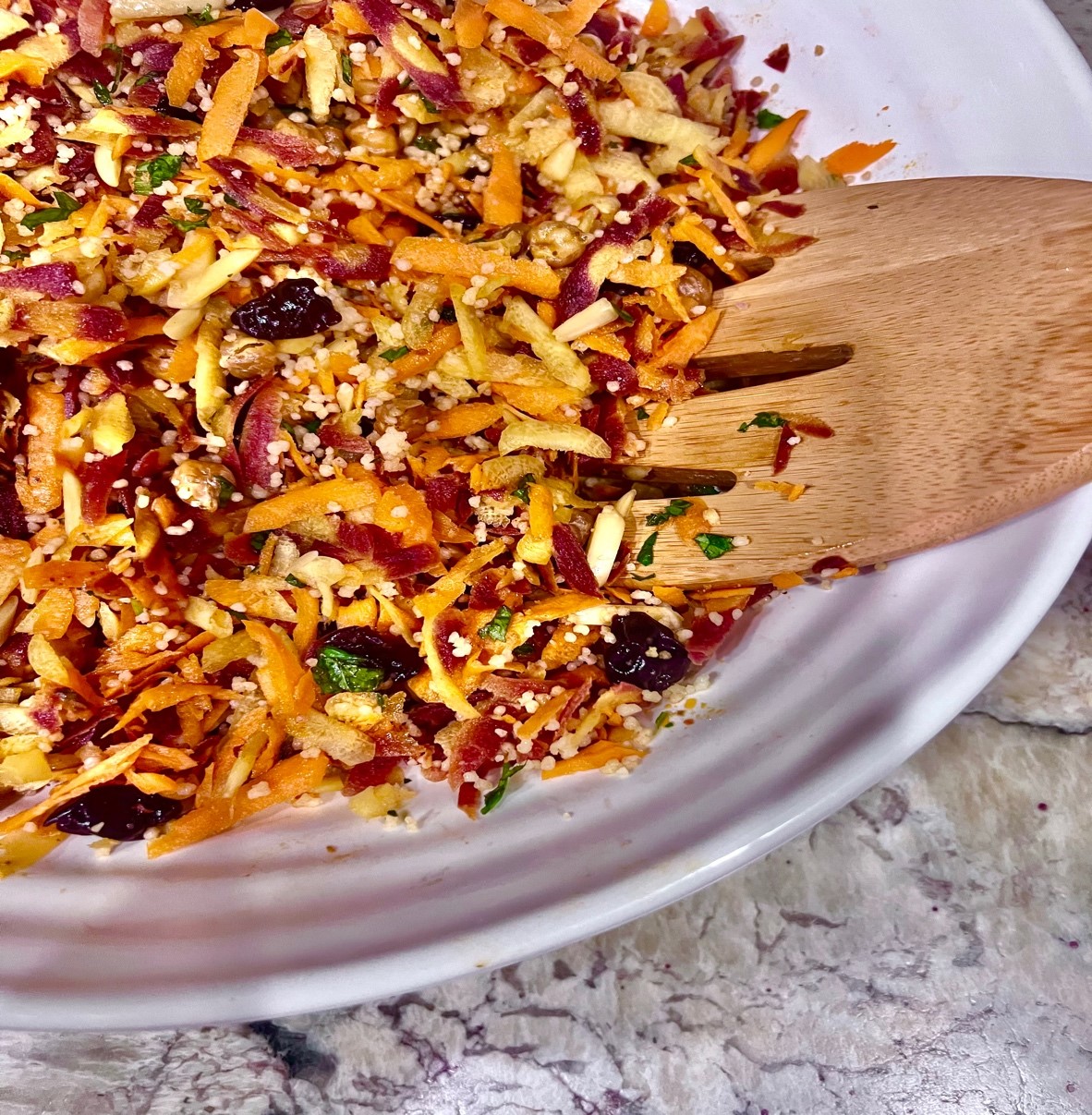
Thank you to our Recipe Co-Curator, Vinola Vincent Munyon, for the excellent cooking demonstration on our June 2nd national webinar. You can watch the recording HERE and get the recipe below. Details
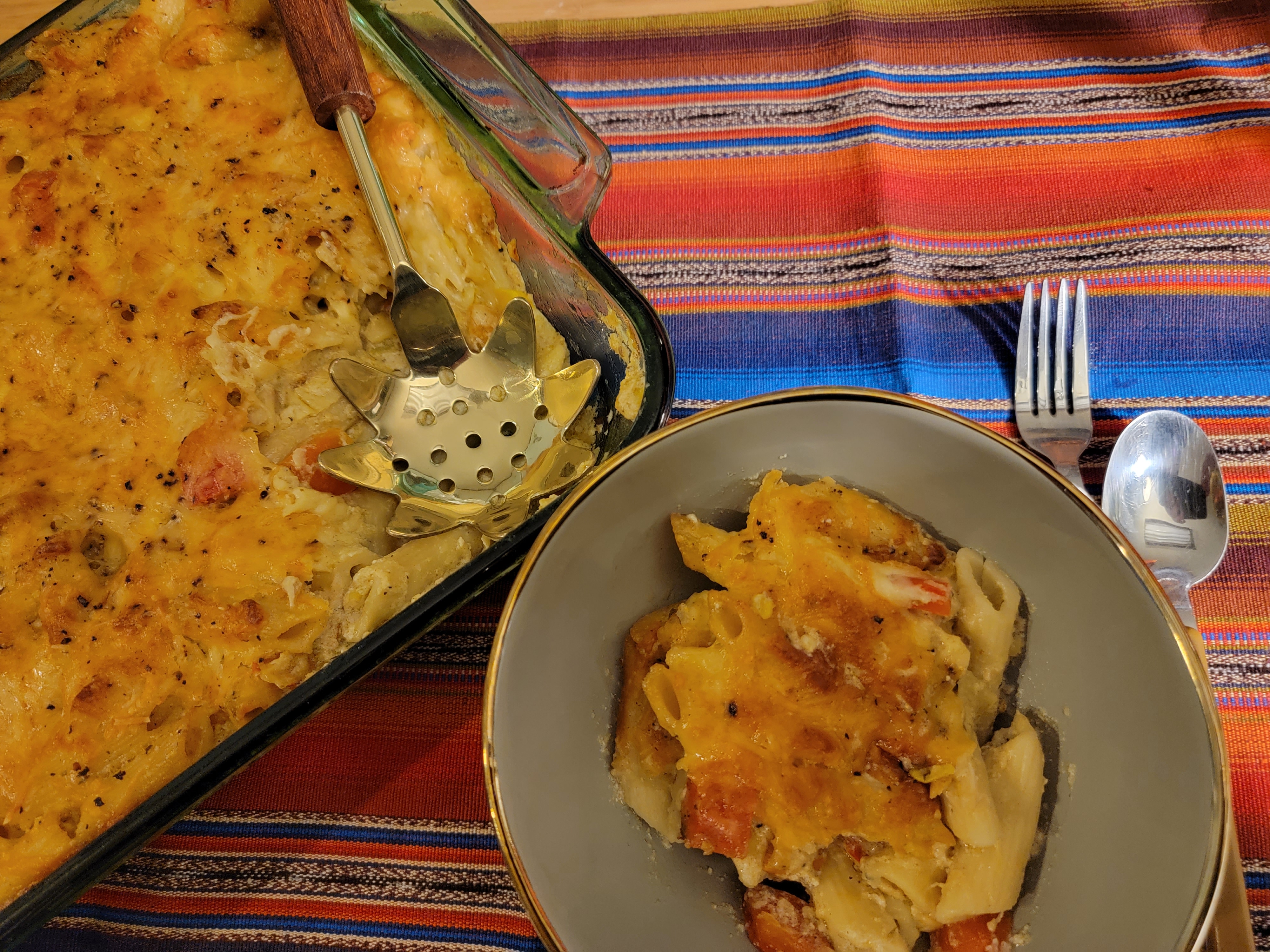
It’s comfort food around the world: pasta and cheese. This Haitian version has a unique taste because the pasta is cooked well done (not al dente) and spiced up with epis, a sauce commonly used in Haitian cooking, which we highlighted in 2020. For this dish, I did add some jalapeno pepper to the epis to bring a little heat. Details
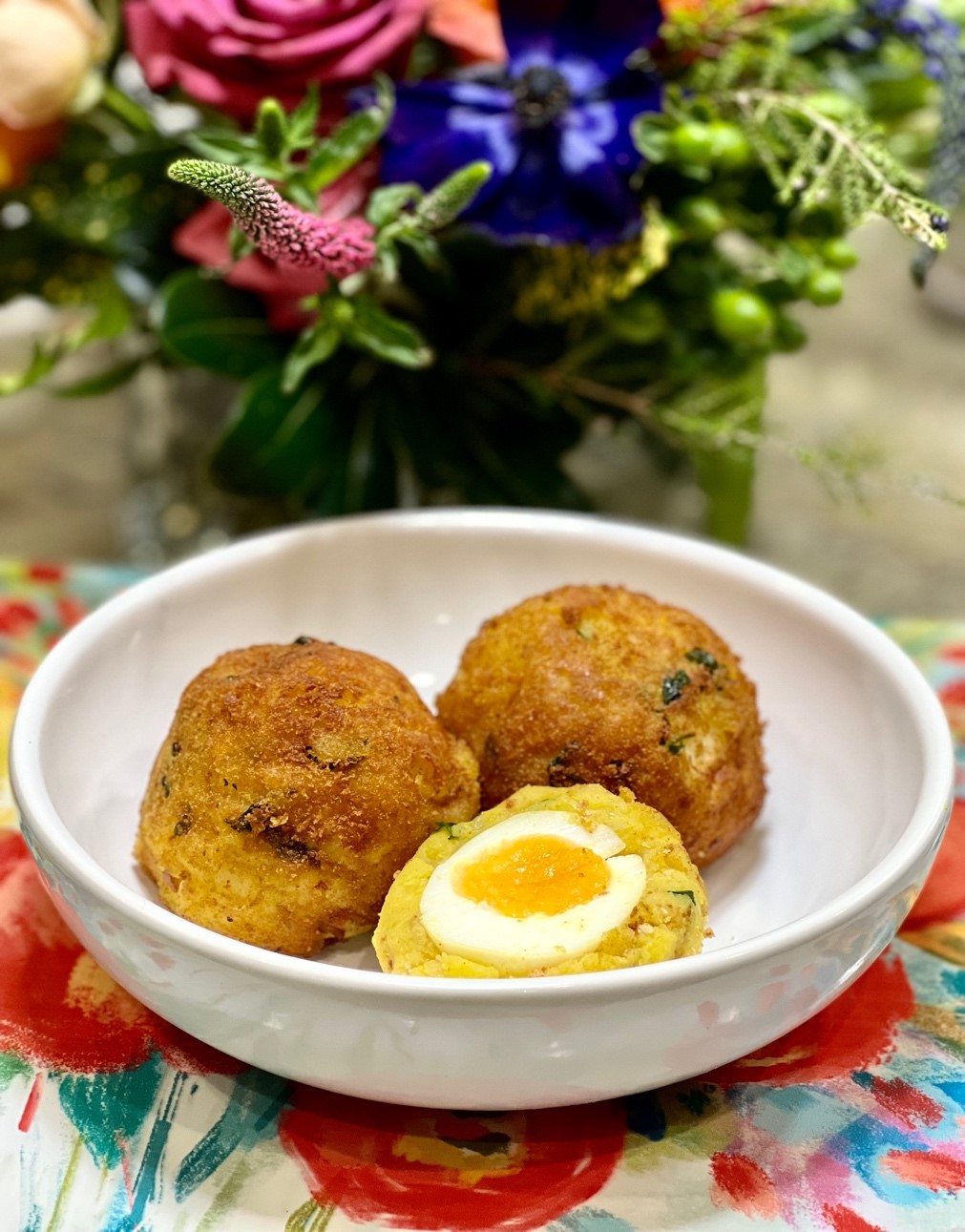
Ugandan cuisine has a lot in common with the cuisine of West African nations, with glimpses of British, Indian, and Arabic influences. The dish for this month, the Ugandan Potato and Egg Roll, could in fact be mistaken for the Scotch Egg, a boiled egg encased in sausage and fried. The Scotch egg is a dish that is on the face of it, quintessentially English. Details
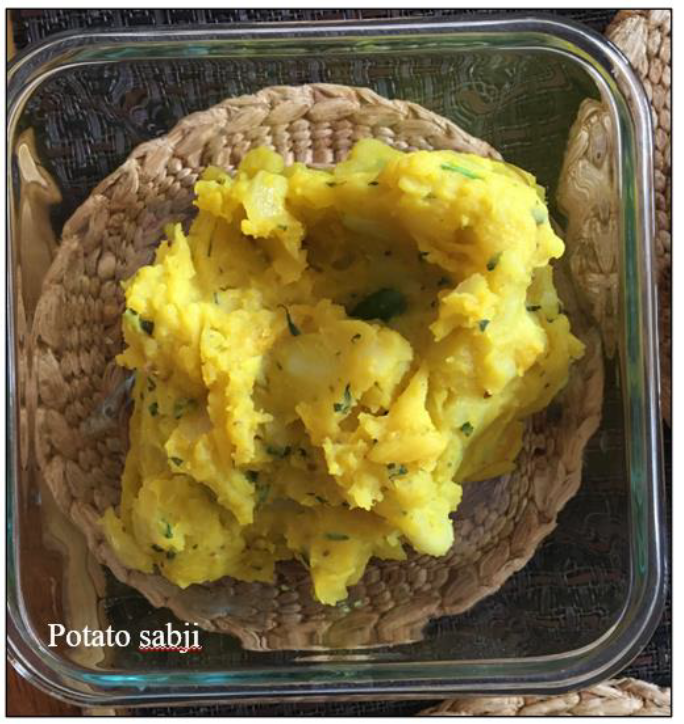
This is a family recipe from Sabita Rakshit, a friend of recipe co-curator Georgia Reader. Sabita’s family is from Bangladesh, but family members now live around the world and share food photos to stay connected. This is a common breakfast dish, but it is hearty and warming any time of day. It is a “to taste” creation, and served in some form across South Asia and around the world. Details
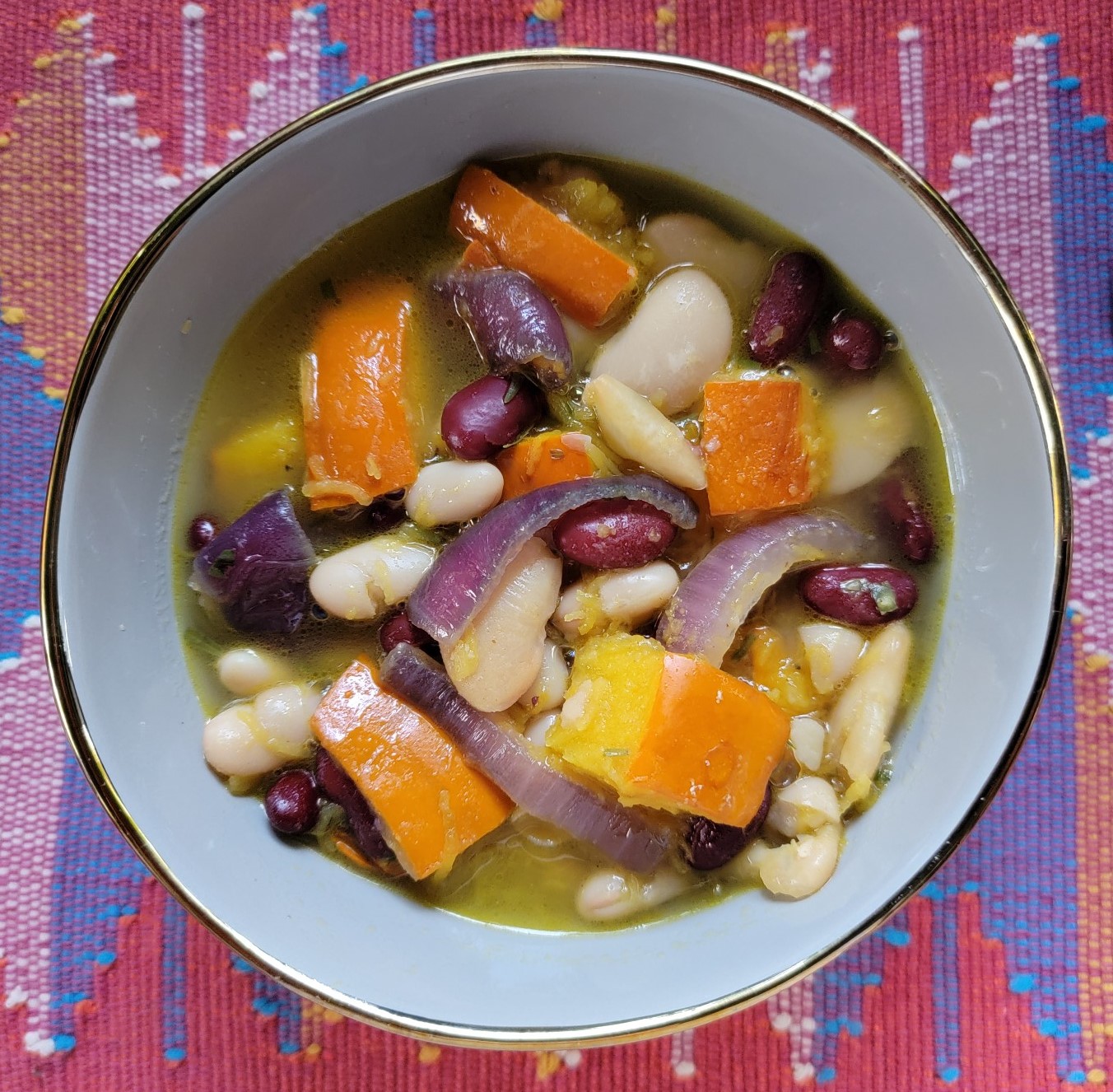
Ibihaza is a bean and pumpkin stew common in Rwanda. It was originally made by soaking dried beans overnight and then stewing them with pumpkin. In recent years, cooked bean stores have emerged to fill the need for precooked beans to save time and the fuel needed for cooking them in the home. These beans are sold precooked and unseasoned. Details
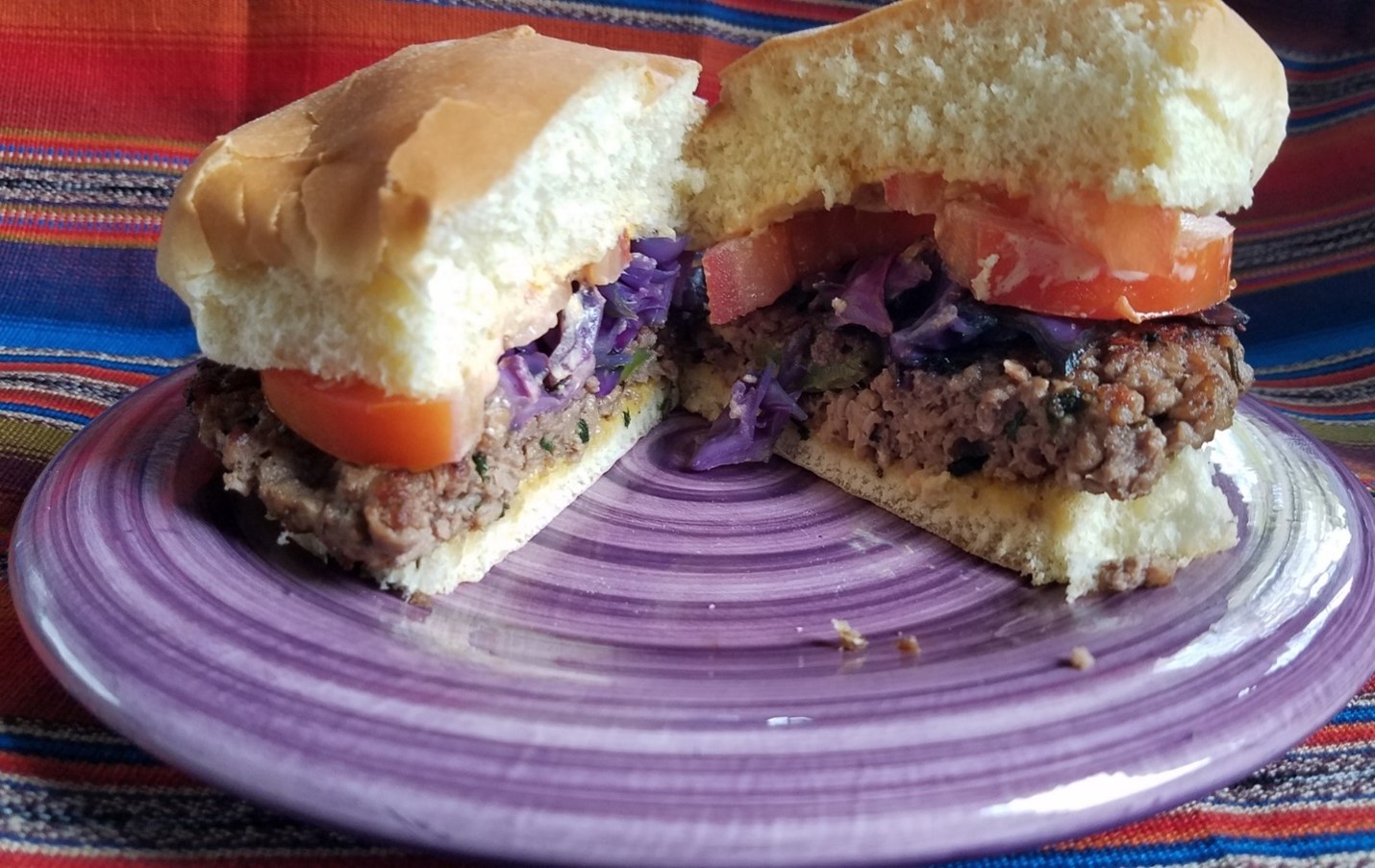
The Dominican chimichurri burger has been called one of the best street foods in the world. The burgers are cooked on a hot griddle or skillet so that a crispy crust forms around the juicy inside. I made one batch with ground beef and one with ground Impossible burger, a vegan option. The spicy sauce, tangy tomato, and cabbage complement the burger resulting in a unique take on an old classic. Details
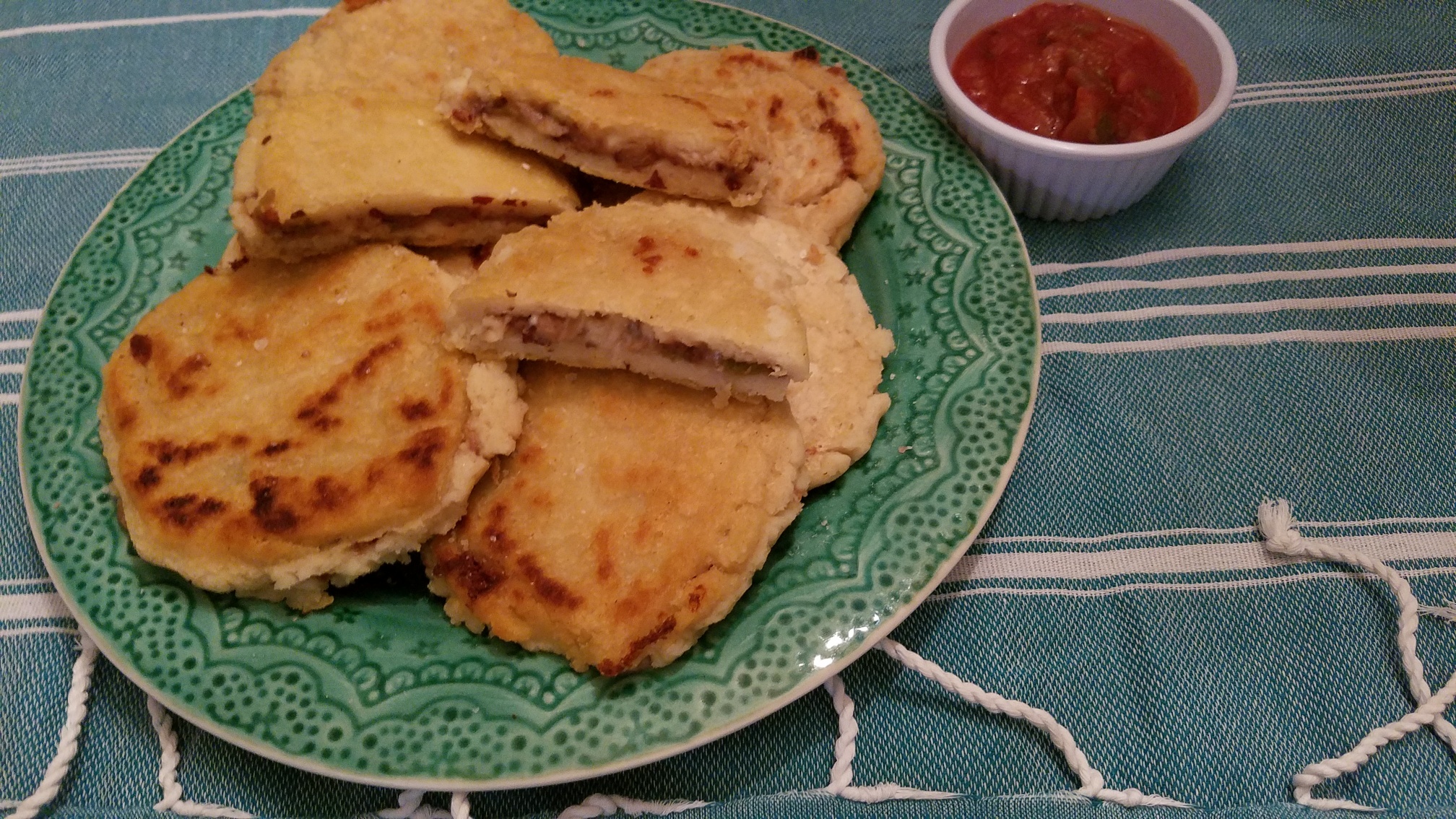
This month’s recipe is Pupusa from Guatemala. Pupusas are stuffed tortilla snacks often sold by street vendors. Traditionally, Pupusa are stuffed with beans and cheese but you can find many varieties with various vegetables and pulled meat. Details
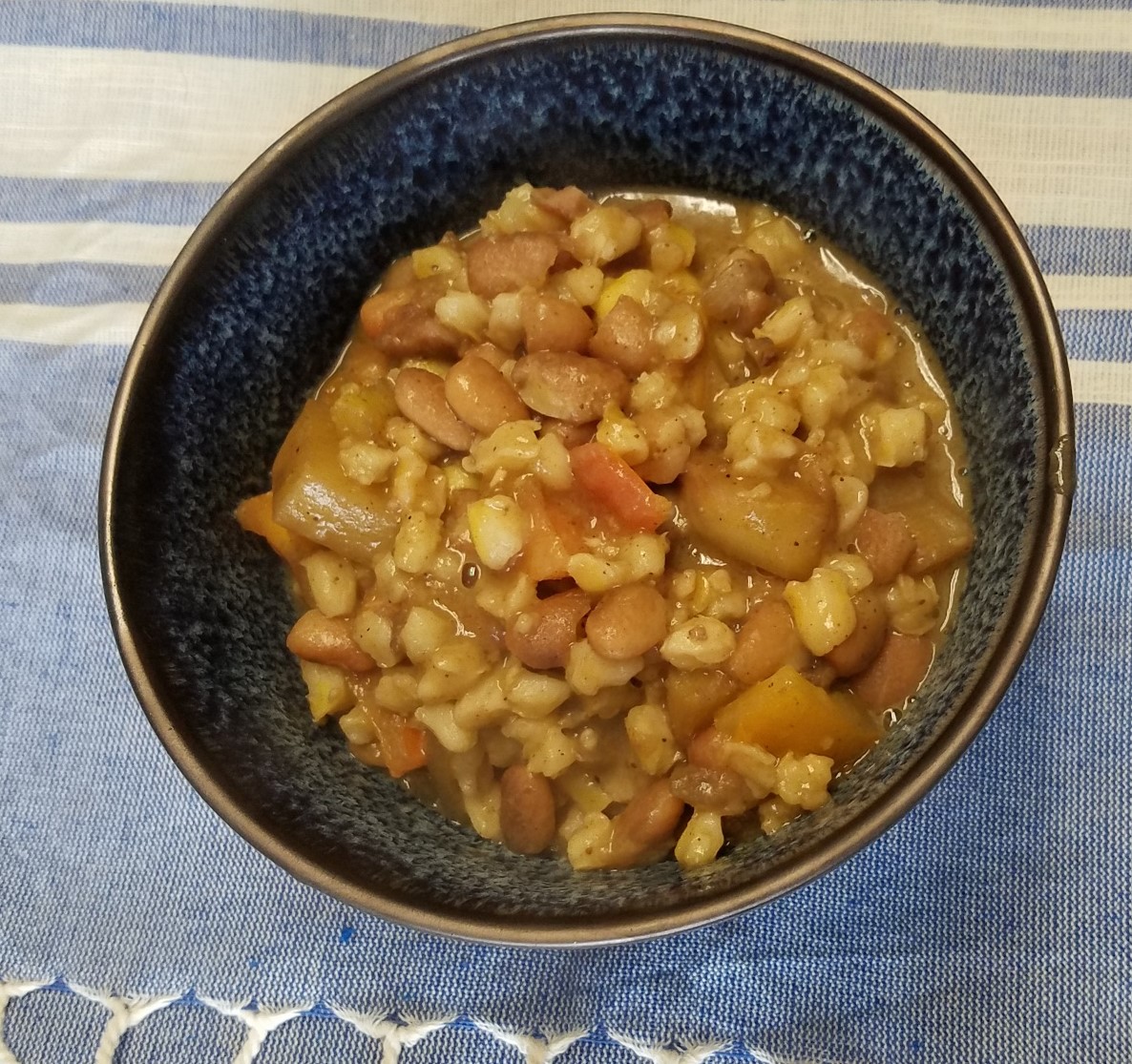
This month’s dish is samp and beans, which comes from Zimbabwe, a central African country. Zimbabwe is bordered by two rivers which supply fish to eat and water to grow crops in the summer. Most of the crops and fish are dried to last through the dry winters. Common to every culture is a stew started from dried beans and vegetables – what sets them apart are the spices used to flavor them. This dish uses a unique blend of warm African spices that elevate the dried beans and samp into a hearty stew. Details
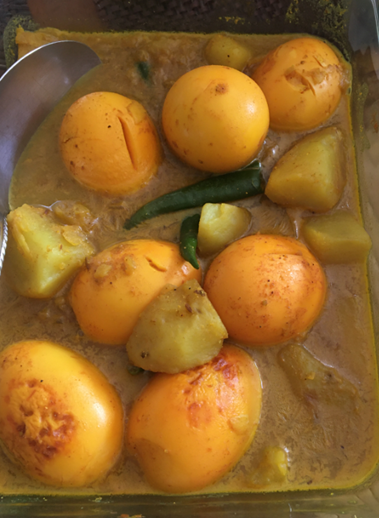
This month’s recipes are from Bangladesh and were supplied by Sabita Rakshit, a friend of mine who grew up in the southern region close to the coast. With fish being readily available, she said most meals would include a fish and rice dish accompanied by various daals (lentil stew) and vegetables. Breakfast was usually Luchi aloo dum. Luchi is deep fried flat bread and aloo is potato – basically, thick gravy made with potatoes and some green peas added. Details
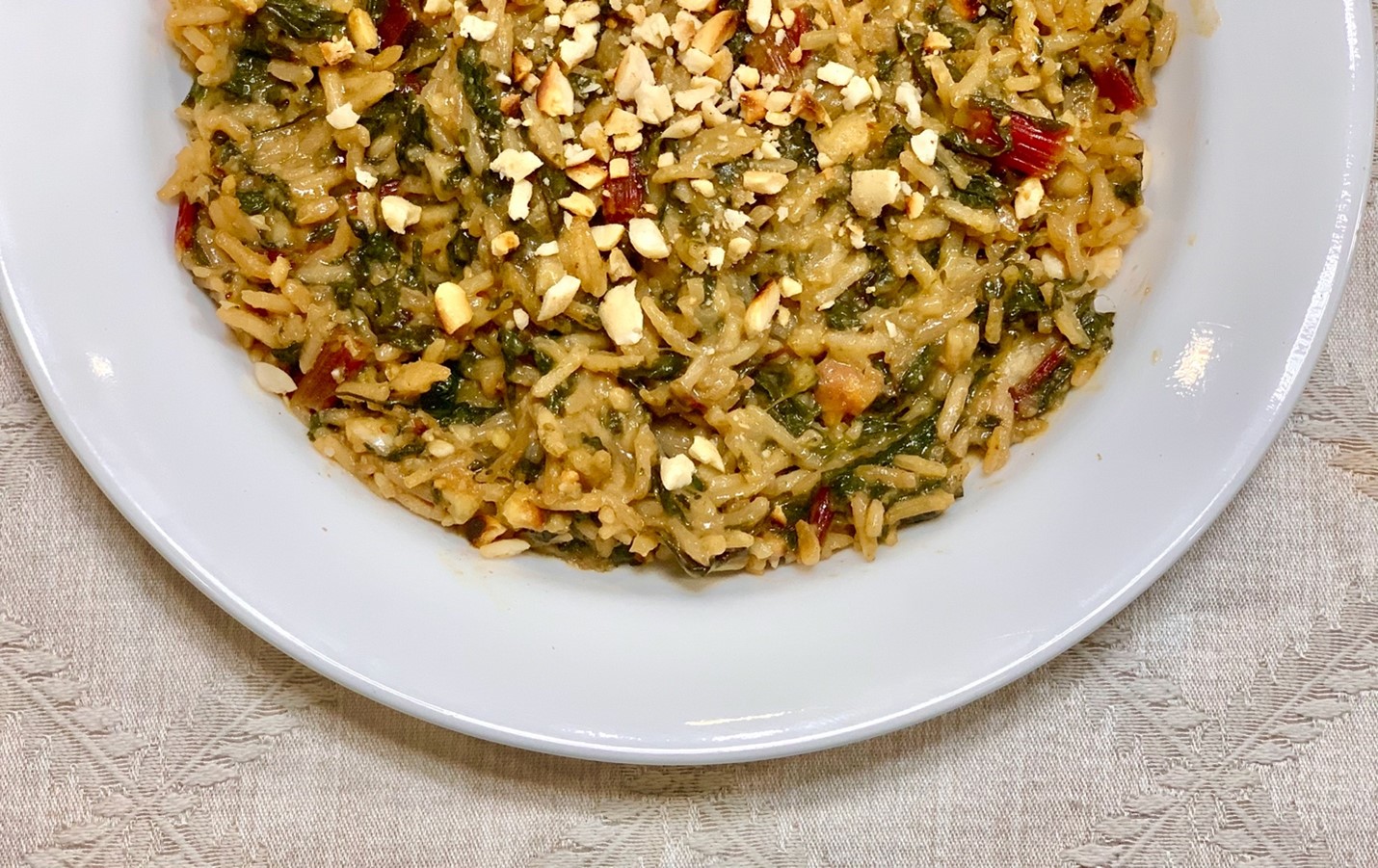
A one-pot dish of greens and rice, Babenda is a popular dish in many parts of Burkina Faso. Greens such as kale, swiss chard, mustard greens, or dandelion greens can be used in the dish. In our recipe we are using a mix of swiss chard and spinach, but any of the other greens can be used or a mix of greens can be used as well. Details
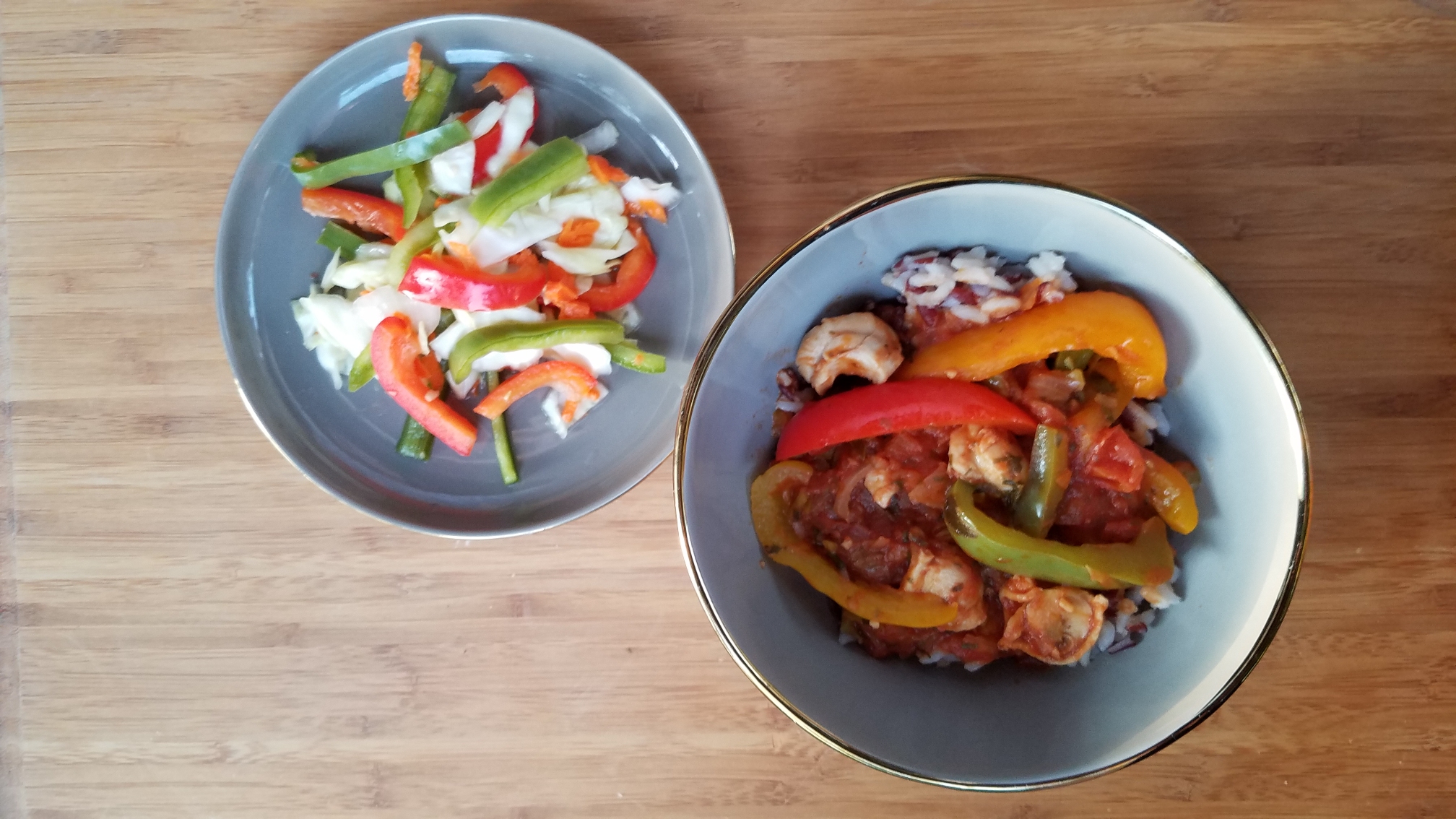
This month’s featured dish is Lambi, a spicy conch stew that was once considered the national dish of Haiti. It is made with a pepper and herb blend known as epis, which is a common addition to many Haitian dishes. On the side is pikliz, a spicy, cabbage-based vegetable blend fermented in vinegar. Overfishing has threatened conch fisheries and made it a less suitable choice for consumption, so I tried a few vegetarian alternatives. I made a batch with plant-based faux scallops in place of the conch and one with button mushroom tops in place on the conch. Both were delicious options with sustainable products. Details
Cambodian cuisine, also known as Khmer cuisine, often gets conflated with Thai or Vietnamese cuisine. While it does share similarities with the cuisine of its neighbors, the flavors are different. If one had to choose two ingredients that were definitive of Cambodian cuisine, they would be rice and fish. Rice is so integral to the concept of a meal that the phrase “Niam Bay” which means “eating” actually literally translates to “eating rice” and Cambodians are known to greet one another with “Nyam bai howie nov?” which translates to “Have you eaten rice yet?” Our Cambodian recipe today is Chha Trob (grilled eggplant with stir fried pork) to be served with rice. Details

This month’s featured recipe is a delicious filled pastry from Lebanon called Maamoul. These molded cookies feature a rose and orange blossom water flavored dough filled with date and nut blends. Each cookie is formed by hand and pressed into a mold which is then wacked on a table or counter to release the cookie which now has a beautiful design imprinted from the mold. A Maamoul mold has indentations of various shapes, size, and design. Each design signifies a different filling. Details
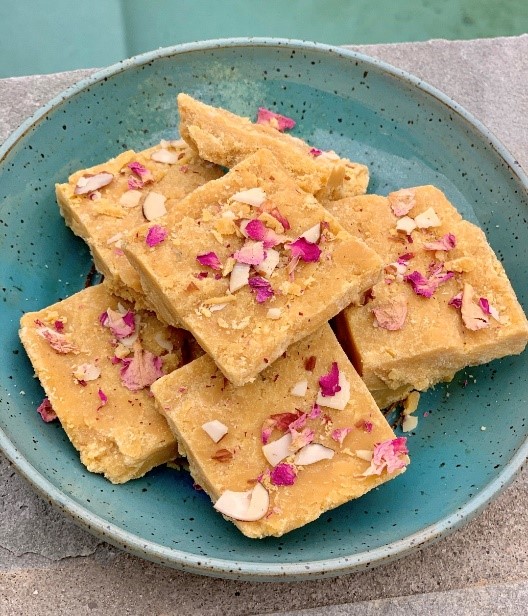
Fun fact: a large number of small Indian restaurants in the United States of America are actually run by Nepali immigrant chefs. Several serve Indian food along with (if one were to look at the fine print on the menu) some dishes that are of Nepali or Himalayan origin. But, repeat after me and loudly: Nepali cuisine is not Indian cuisine (our Nepali friends will appreciate us remembering this). Nepal, through its geographical and historical association with India and Tibet, has influences of both in its cuisine. However, the flavor profile is different. Nepali dishes use fewer spices and aromatics and less heat. Also, Nepali cuisine has a preponderance of vegetarian dishes. Second fun fact: “vegetarian” in Nepal can mean different things. It could mean “not meat and eggs” (dairy products such as milk and cheese are consumed, however) but it could also mean “not beef” (but include poultry and mutton). The latter is tied to the sanctity of cows in the Hindu faith. Details
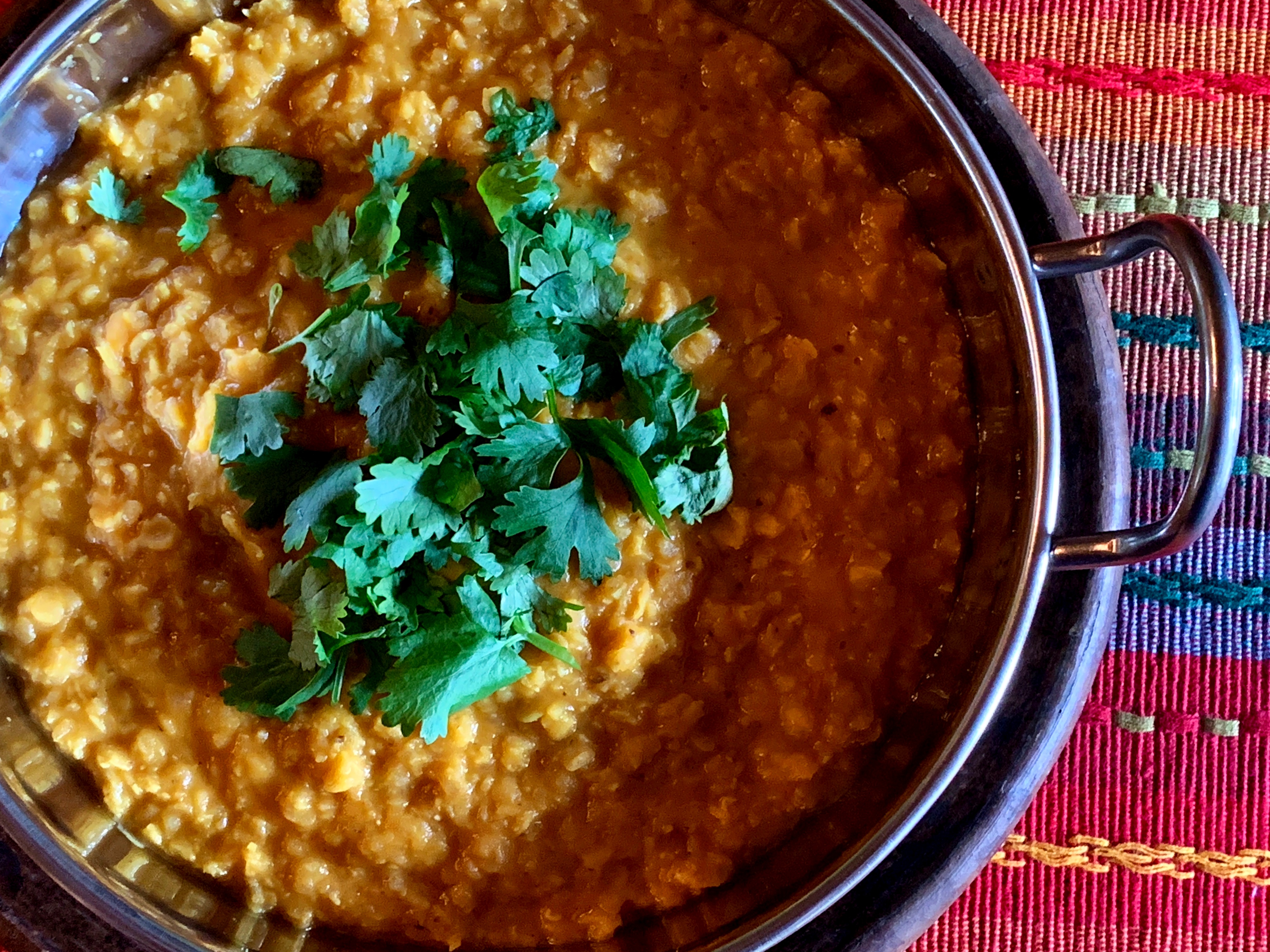
September’s featured grantee, Edu-Girls, Inc., is located in India, a vast country with so many distinct culinary regions. If I spent the rest of my life cooking only the foods of India, I’d still have a lot to learn about the foods of India. One thing I definitely know is that cooking and eating the flavorful vegan and vegetarian dishes of India have a positive impact on my taste buds, my food budget, and my health. Details
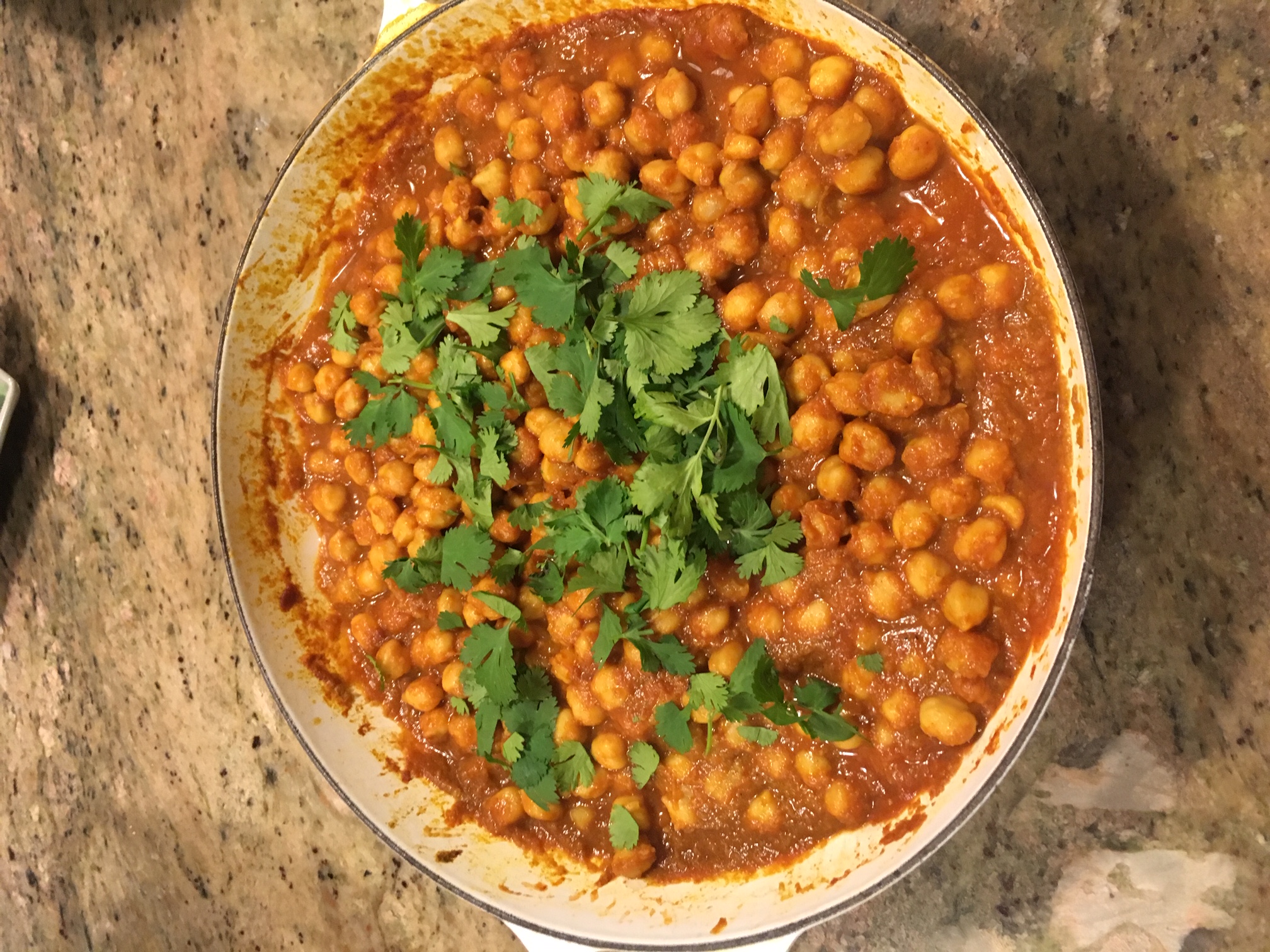
Pakistan is the home to this month’s featured grantee, Irqa Fund. Just imagine the culinary possibilities of a country that’s bordered by China, Iran, Afghanistan, and India. Wow! From a cooking perspective, the recipe options seem so exciting, so full of creative possibilities. Truthfully, it would be entirely possible for me to go totally overboard. Details
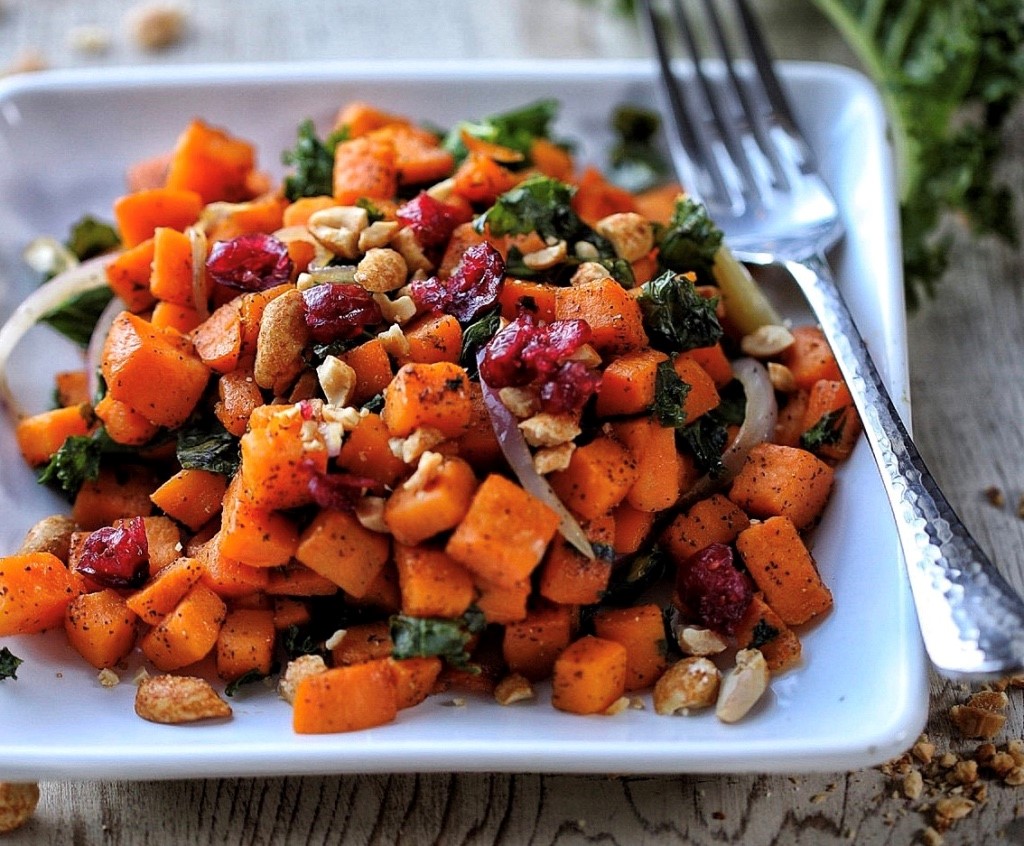
Hello Diners!
This month we are traveling to Benin (Beh-NEEN). It is just a tiny slip of a country in West Africa. It runs the long way south to north, and it is surrounded by Togo, Burkina Faso, Niger and Nigeria. The official language is French; however, many indigenous languages are still spoken.
Peanut- and tomato-based sauces are commonly prepared and served over couscous, rice and beans. Yams are a main staple in the north; meats such as beef and pork are used sparingly. In the south, the most common ingredient used is corn, with fish and chicken being the most commonly consumed meats. Details
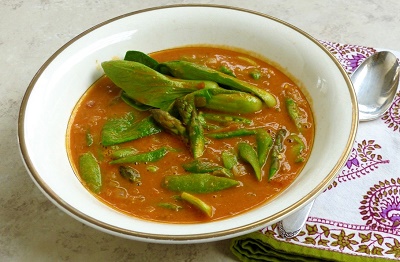
Hello Diners!
We are traveling to Mali this month. I think we were just there! For this month’s Proven Platter recipe, I decided to see what was already on the site, and choose a recipe to put through my testing process. The result is that I’ve revamped and replaced the recipe for West African Peanut Soup (Tigua Dege Ne). Details
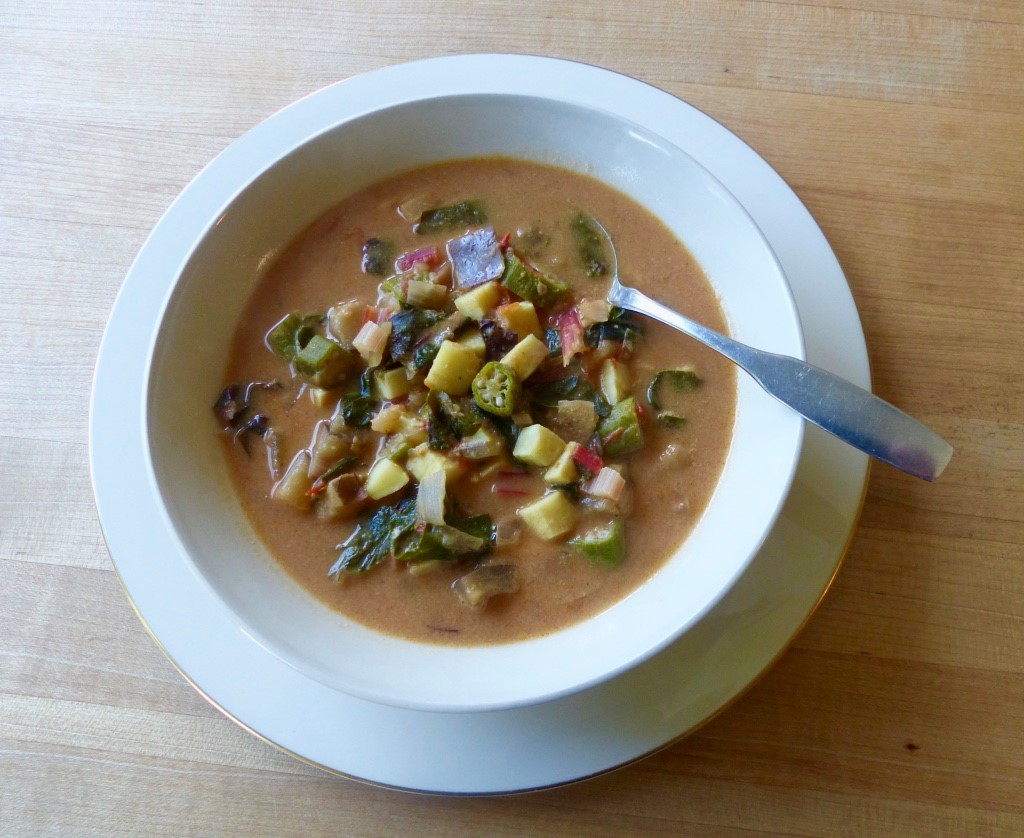
Hello Diners!
The Republic of Chad, located in northern Central Africa, is the subject of our focus and our dining destination this month.
Okra is one of the most commonly consumed vegetables there. It is used both to thicken sauces and as a vegetable used in preparation of soups and stews. I suppose you either love okra or hate it, but as it happens, I love it! And since I’ve yet to post a recipe calling for okra, I think okra’s time in the spotlight has come. Details
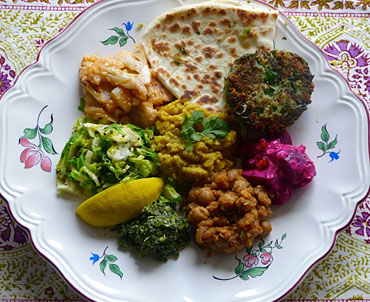
Hello Diners!
This month our culinary journey takes us to India, specifically the Maharashtra state in Western India. I got a little ambitious this month though, and rather than present you with one “proven platter” dish, I constructed an entire thali platter just for you! I had a lot of fun working on this project, and even more fun eating the leftovers for days!
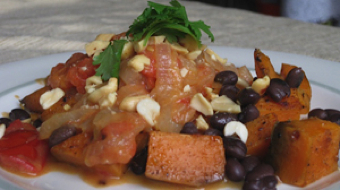
This month’s Proven Platter recipe is a mash-up of sweet potatoes, beans, and peanuts that Ugandans call ‘Bufuke’.”
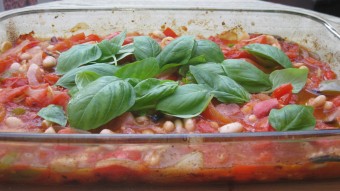
This month’s Proven Platter recipe is a Tomato and White Bean Stew, called Togola in Niger. Try it with bread baked in a Dutch oven! Details
© 2025 Together Women Rise
Together Women Rise is registered as a nonprofit 501c3 organization. EIN 20-0031928